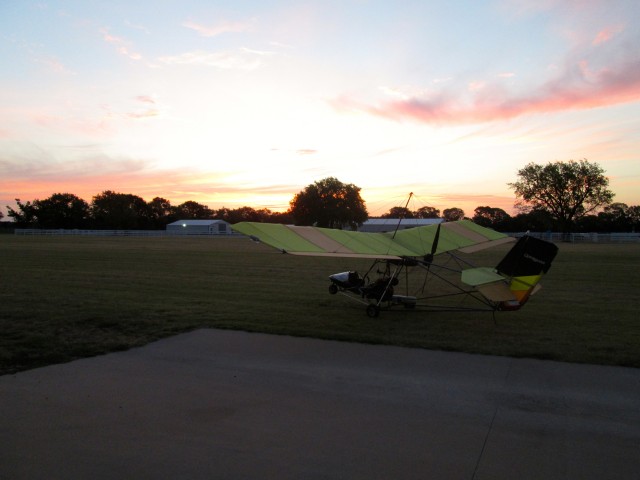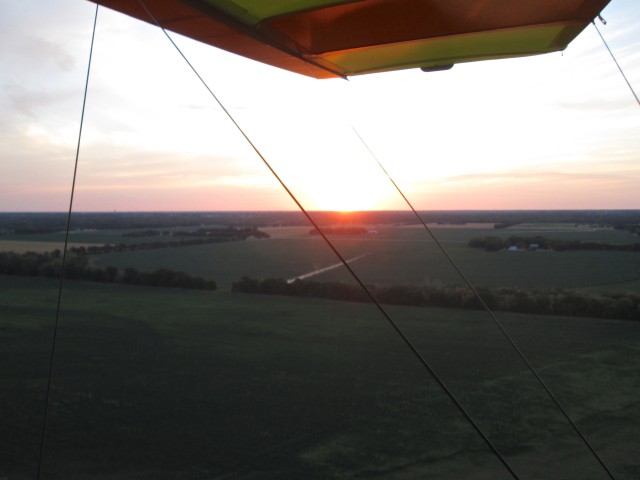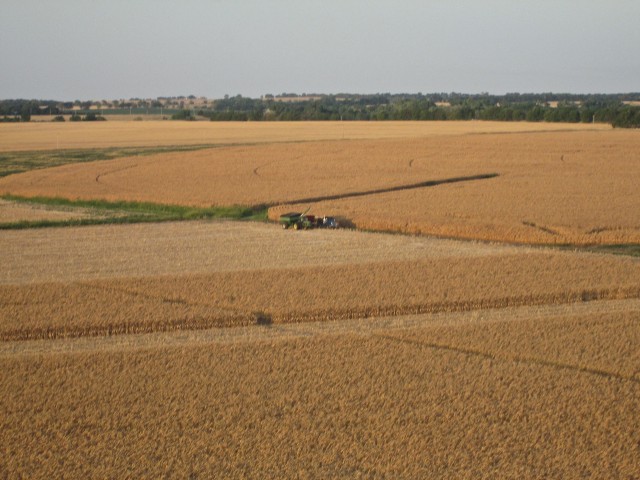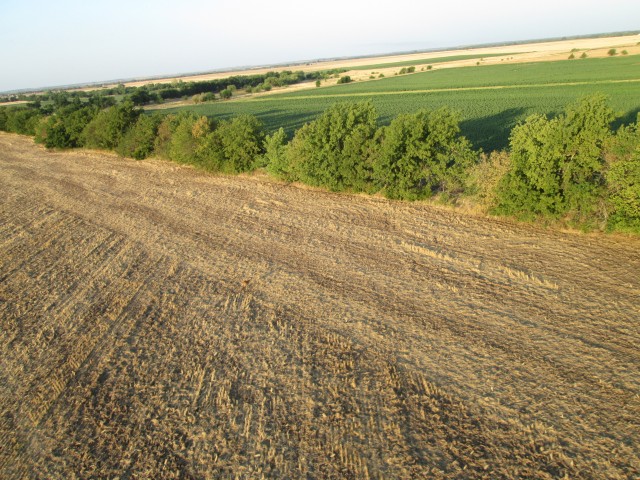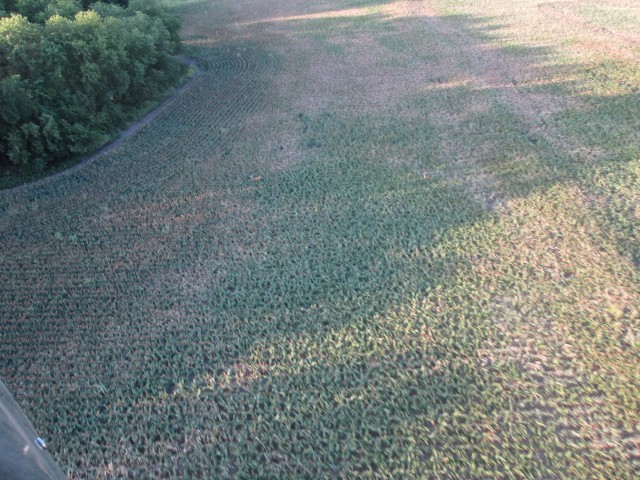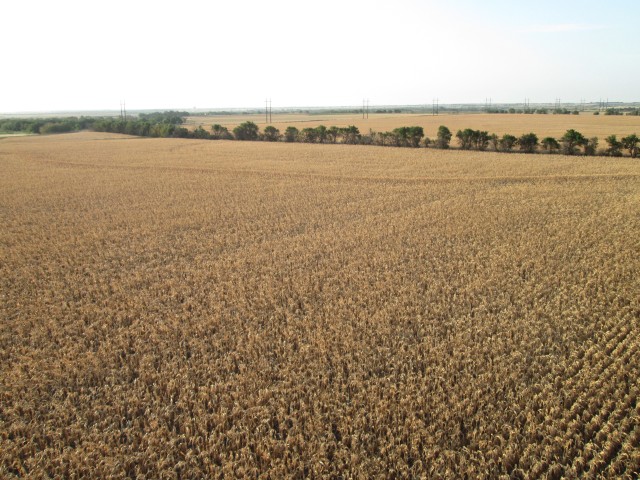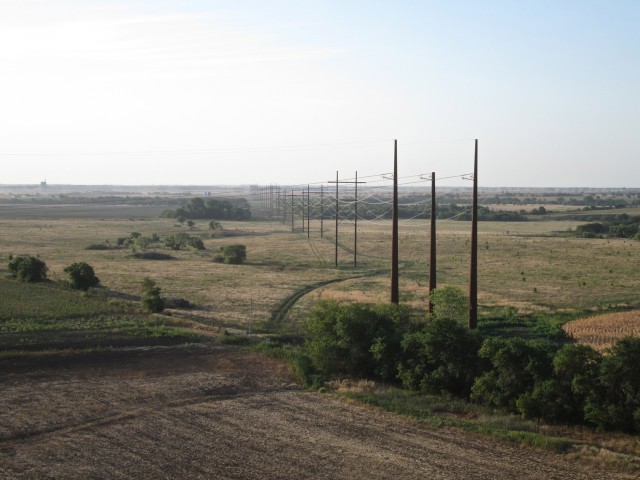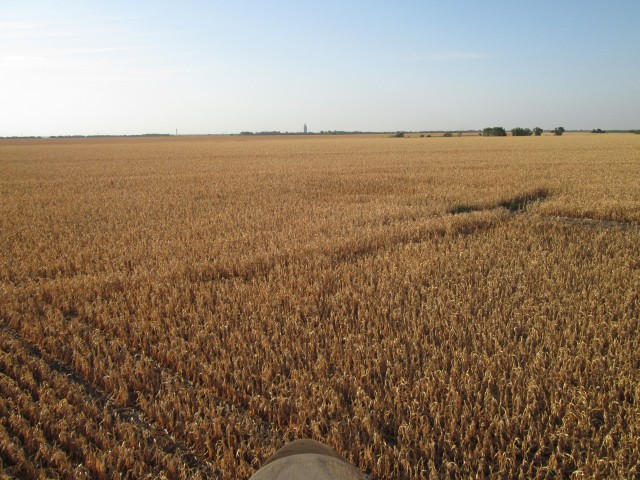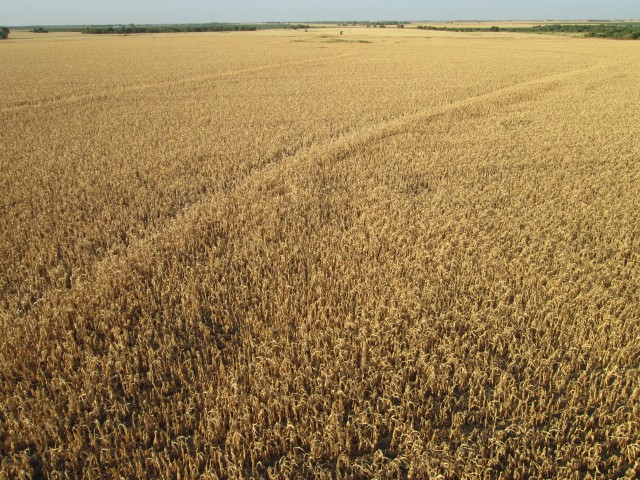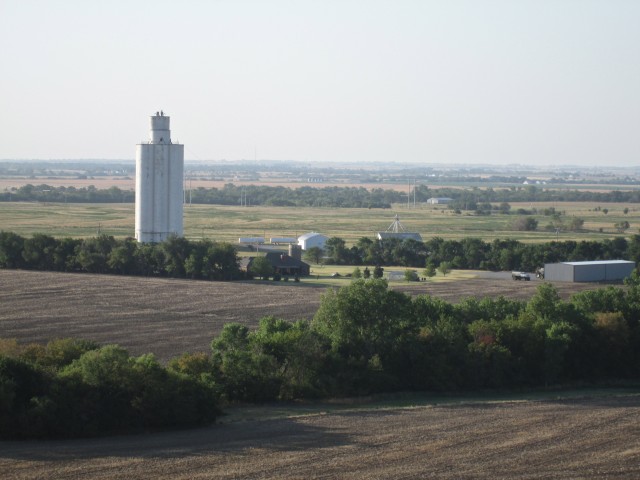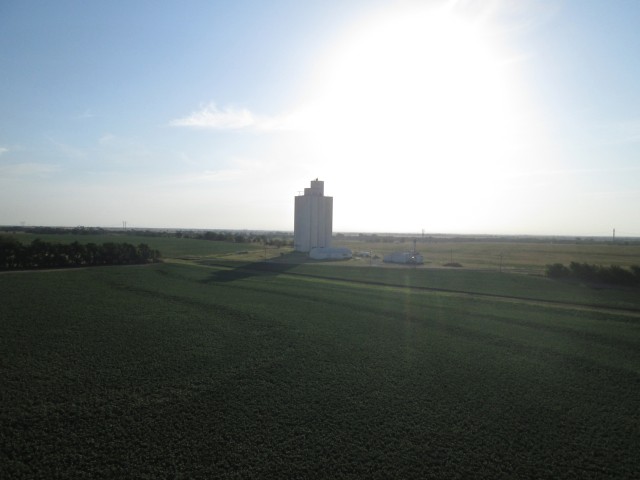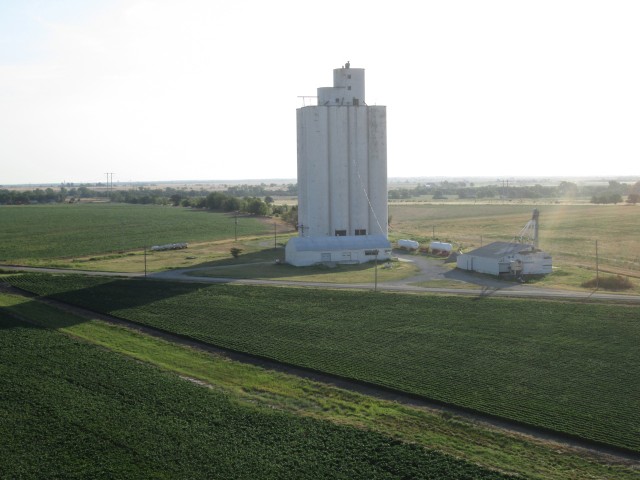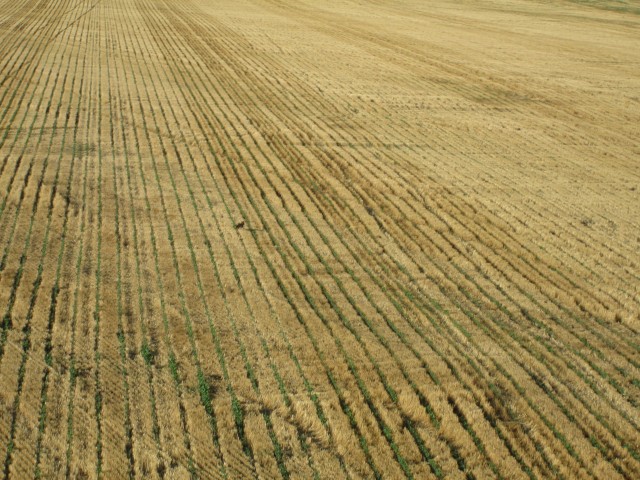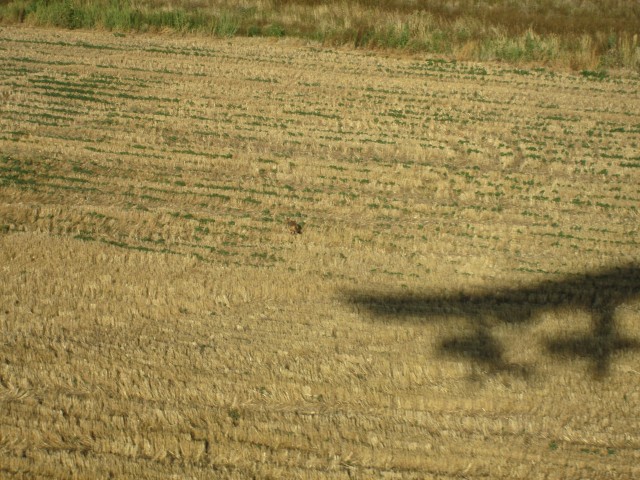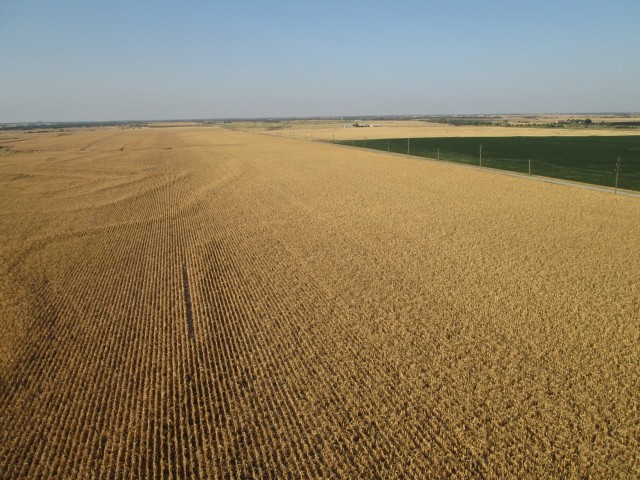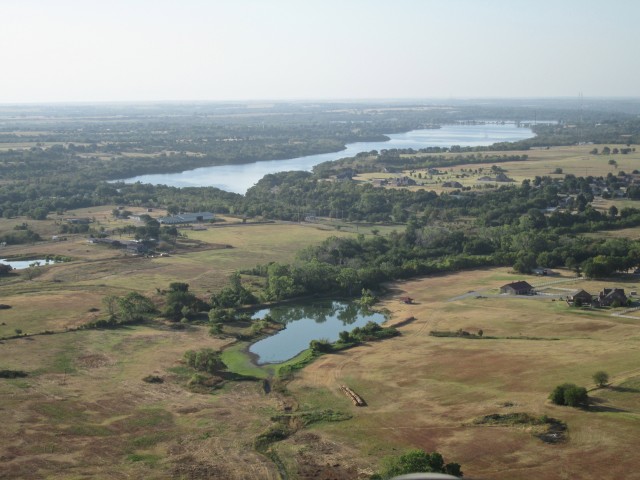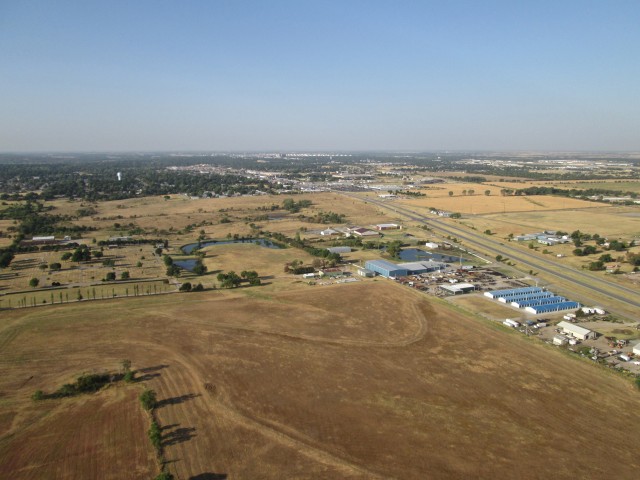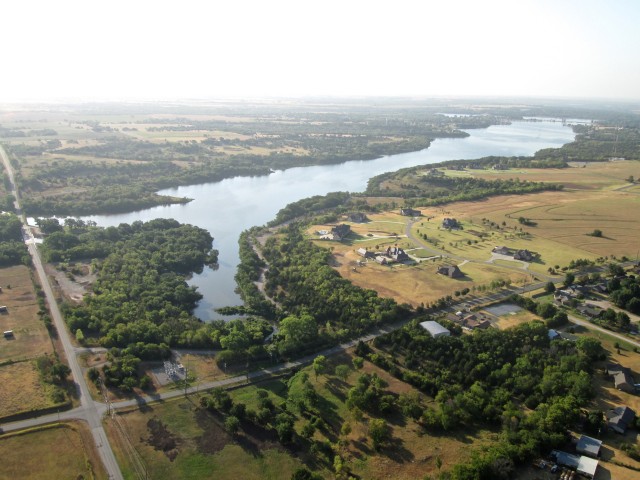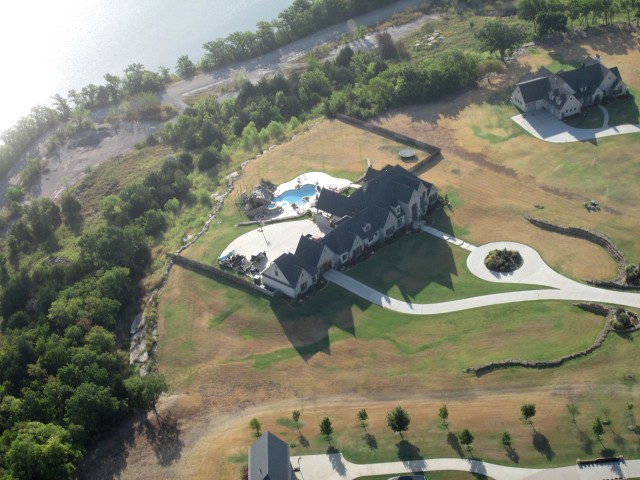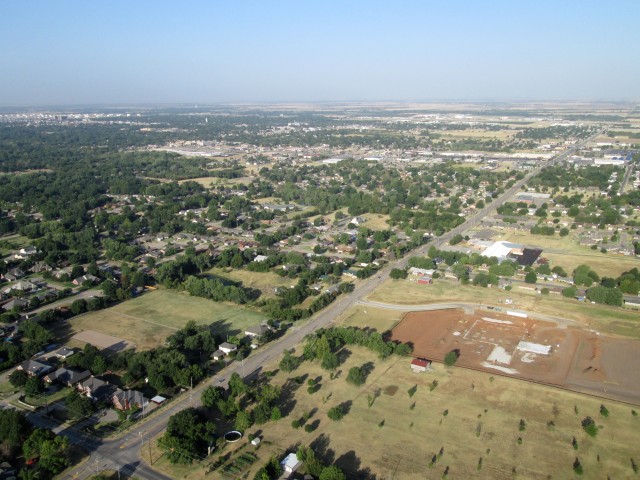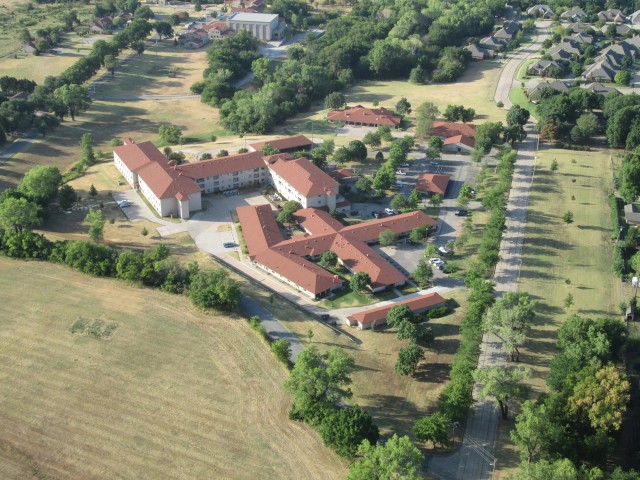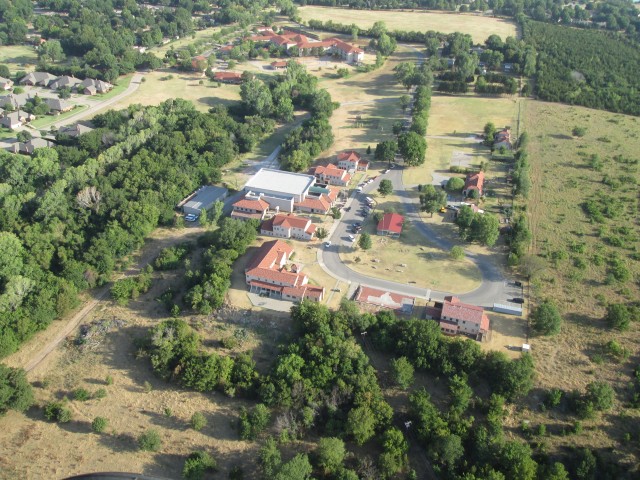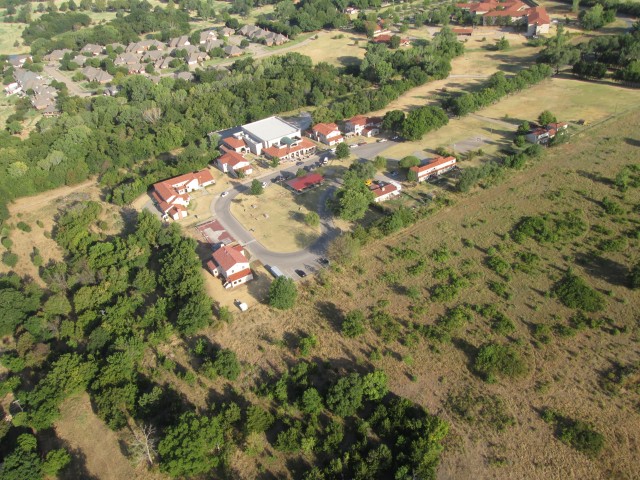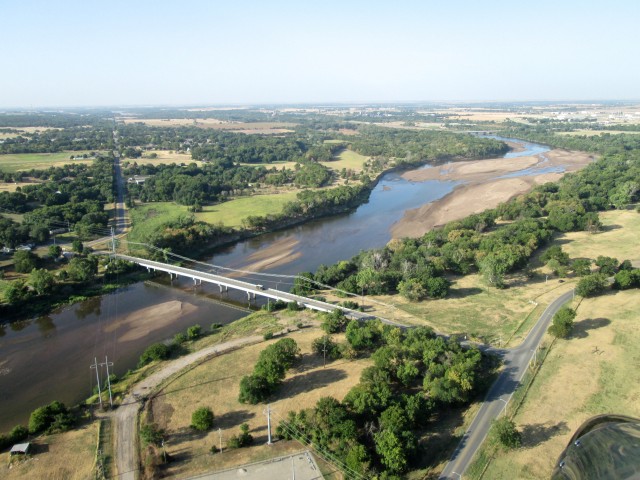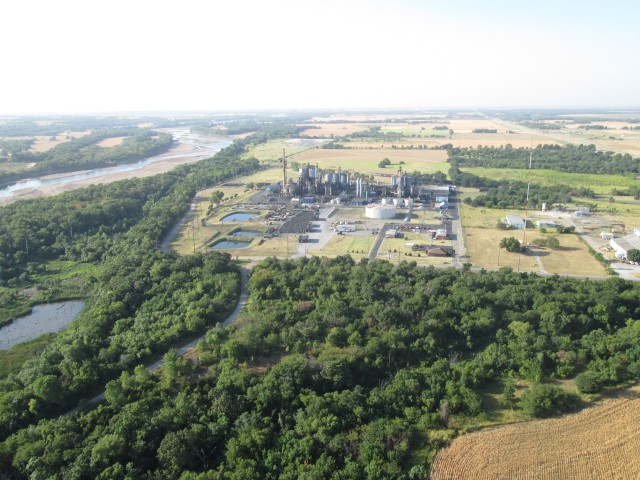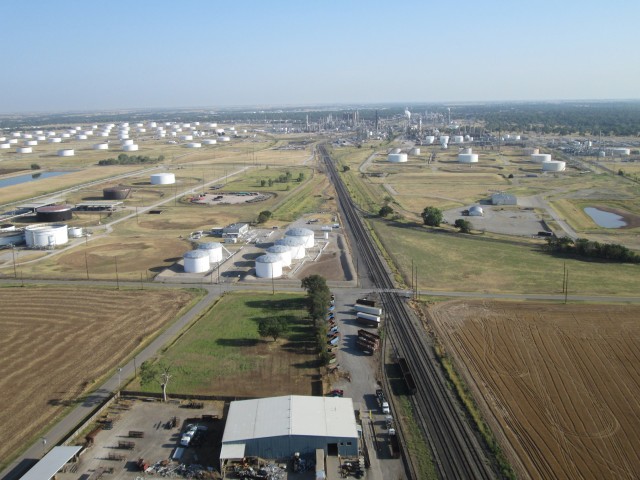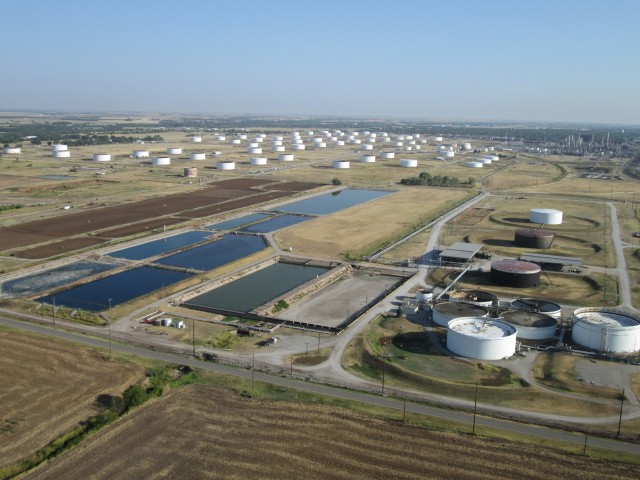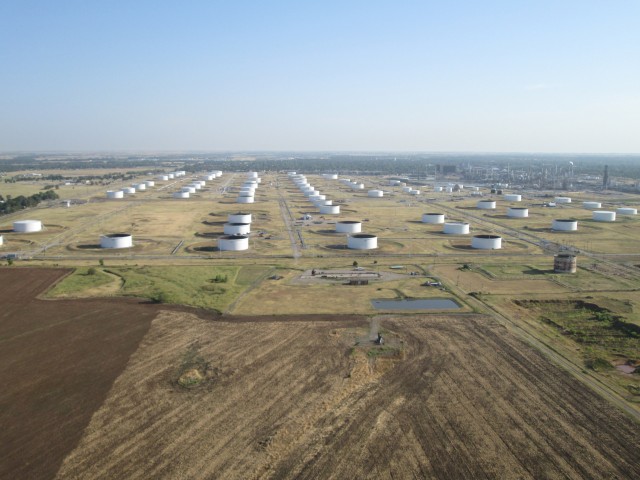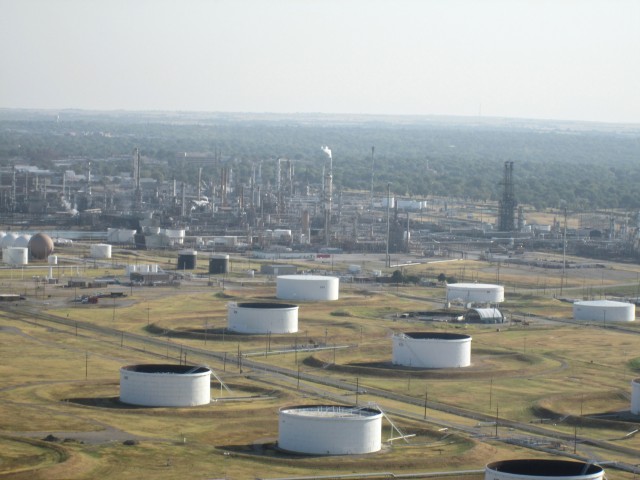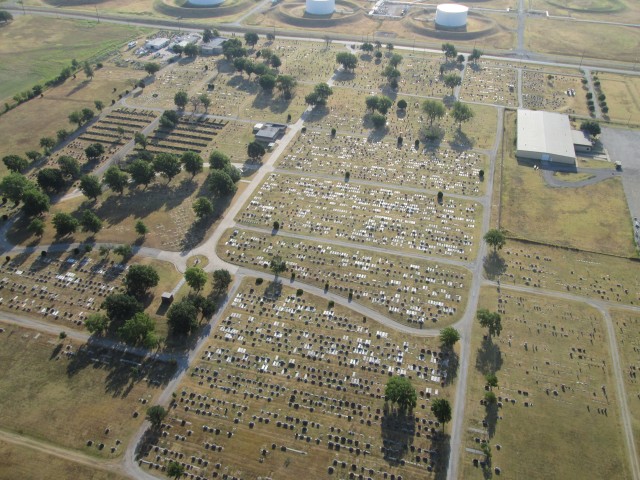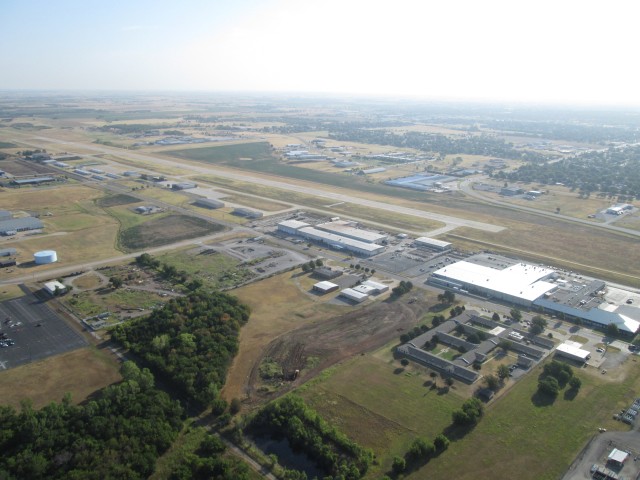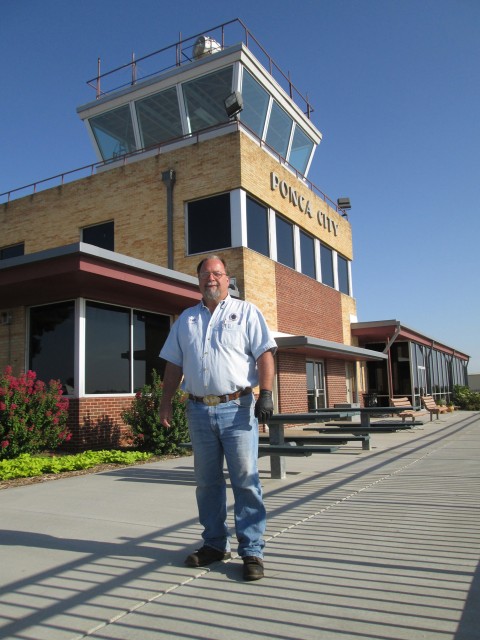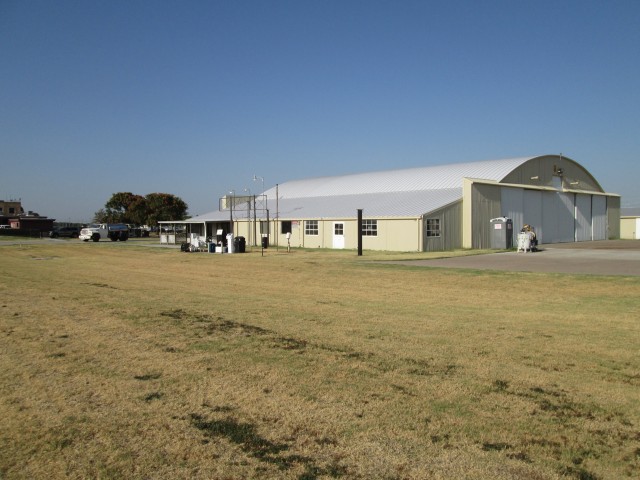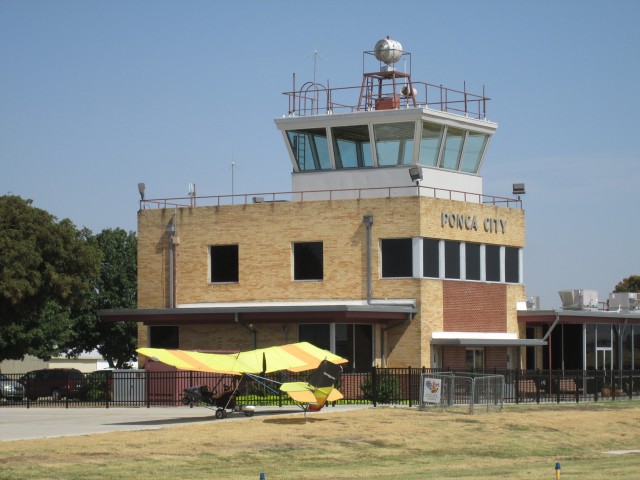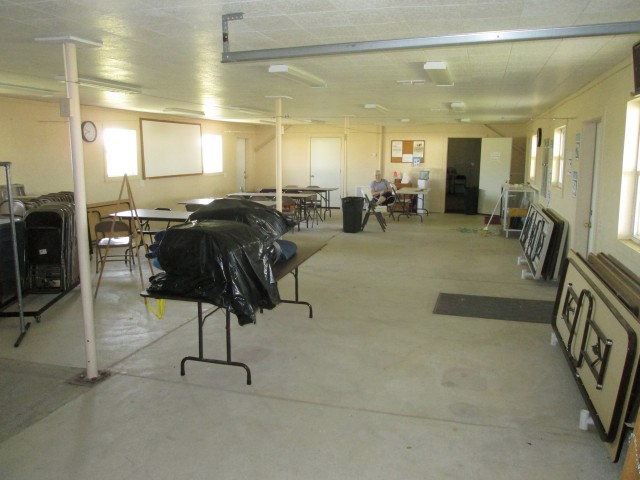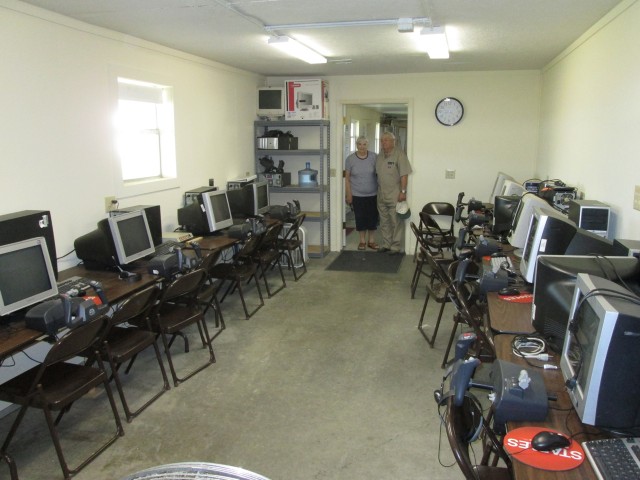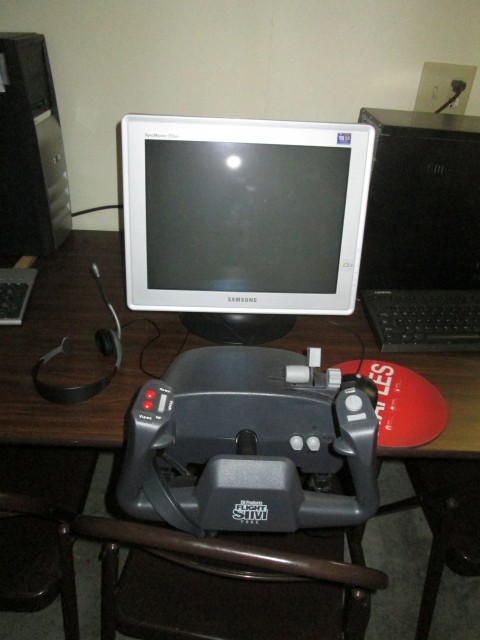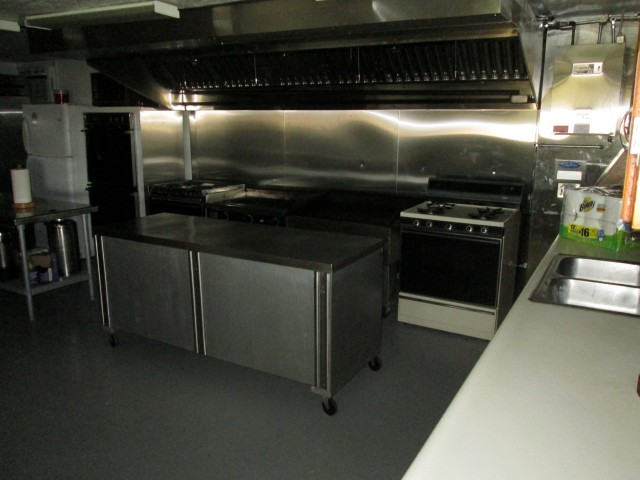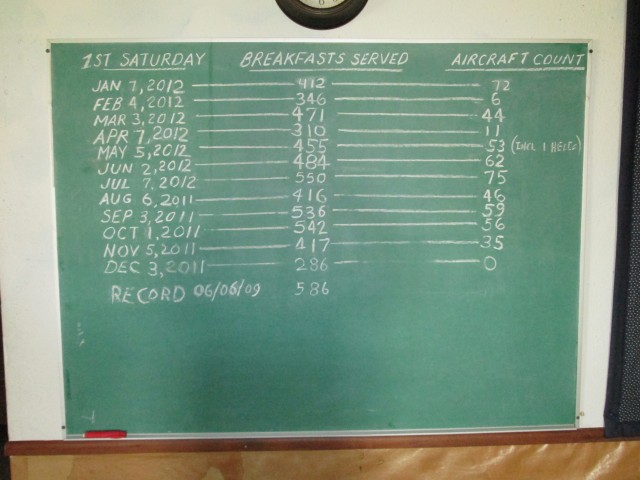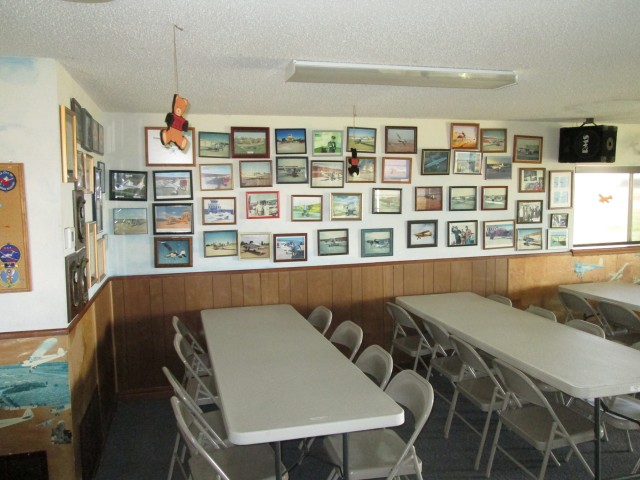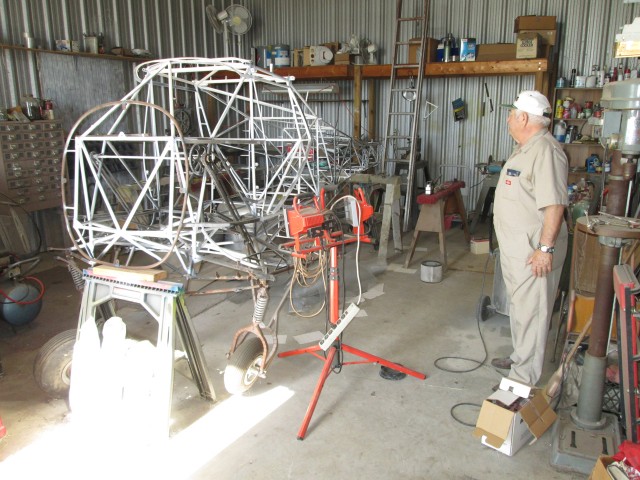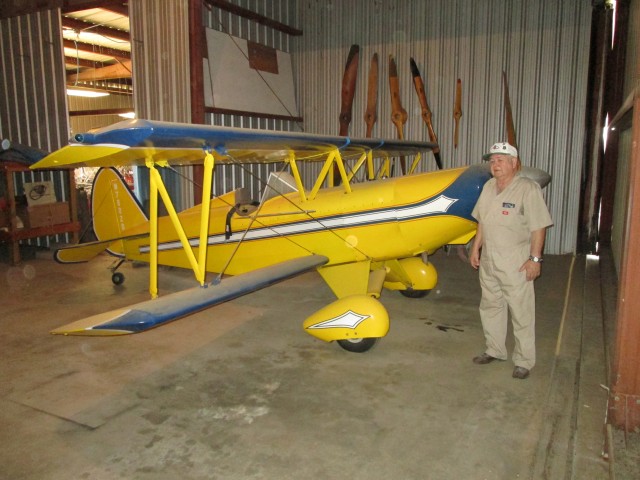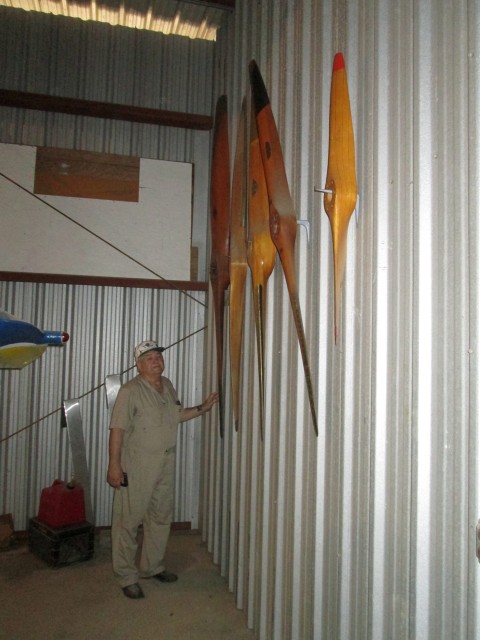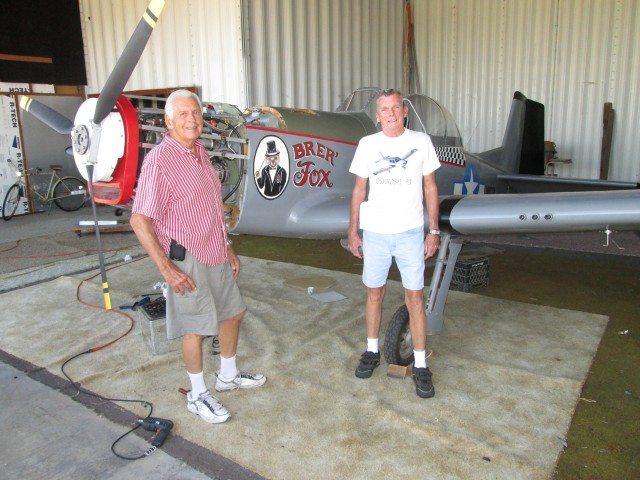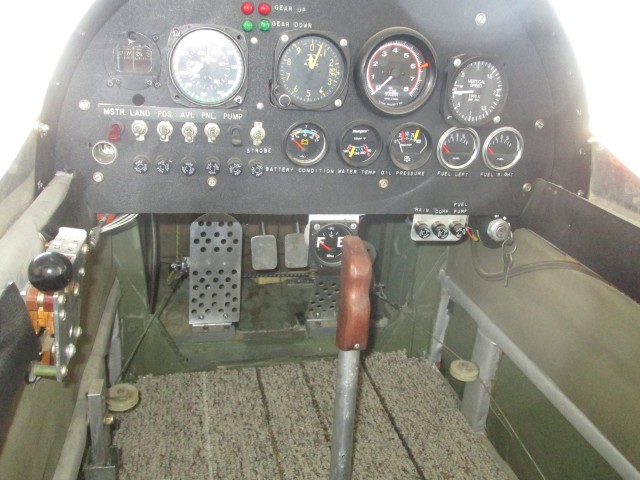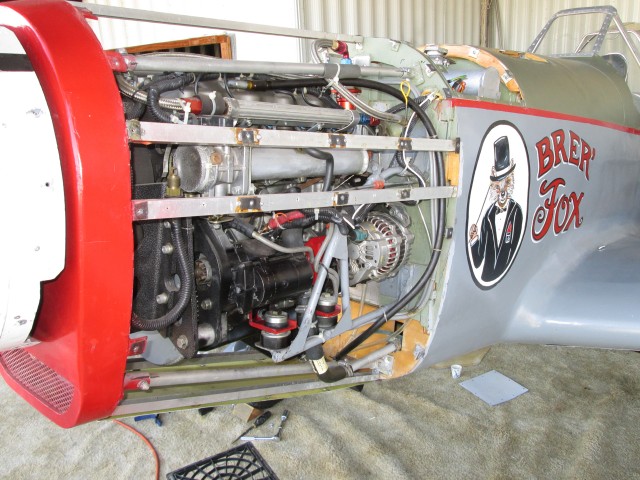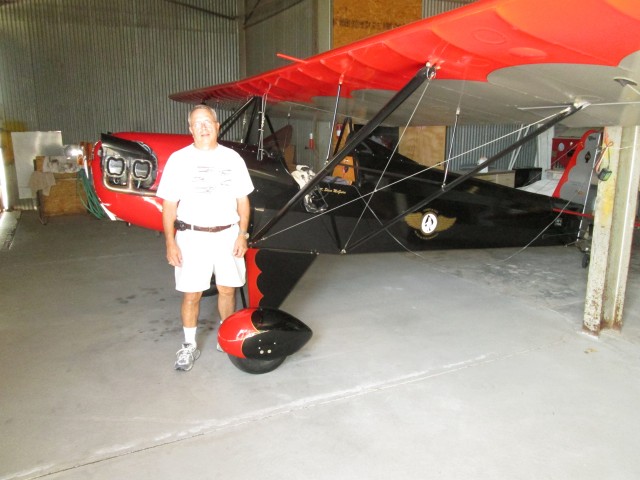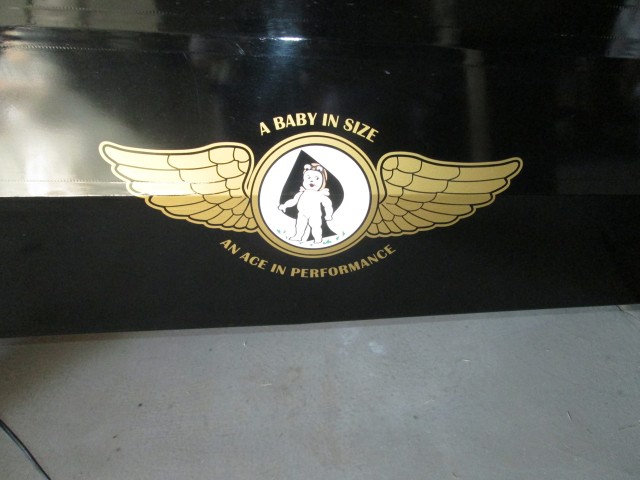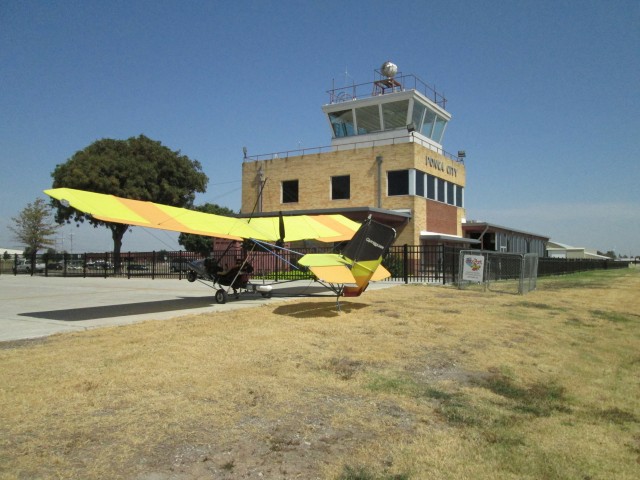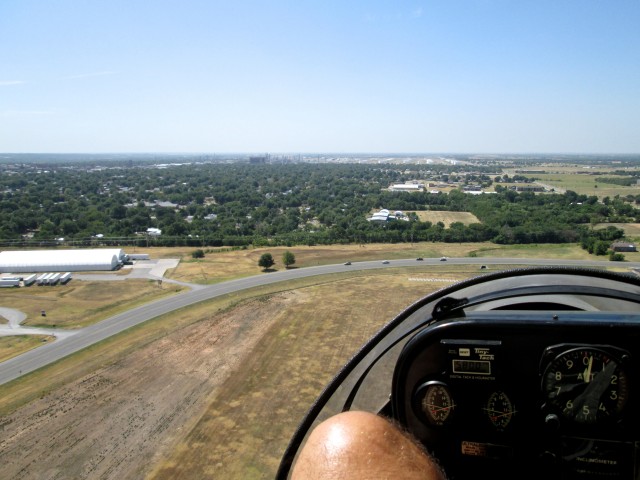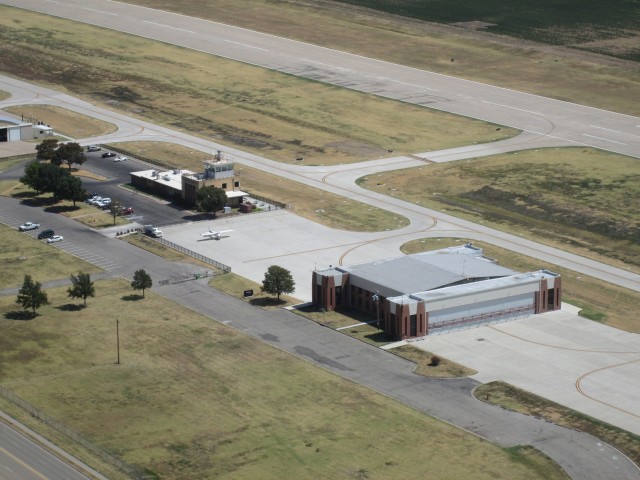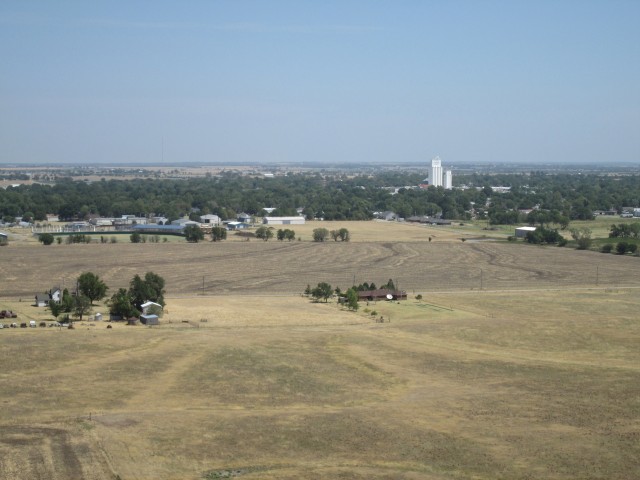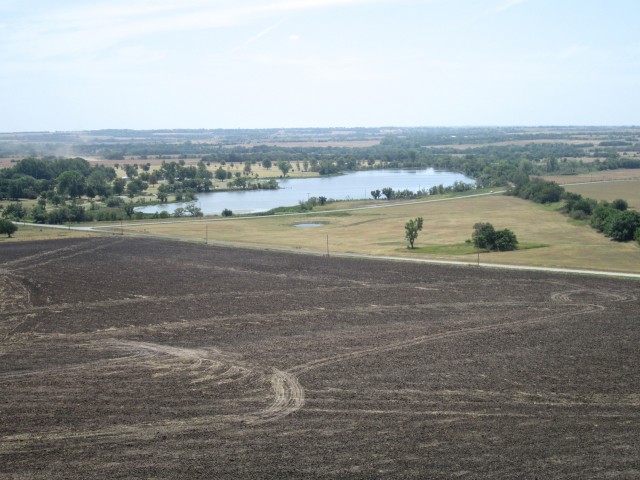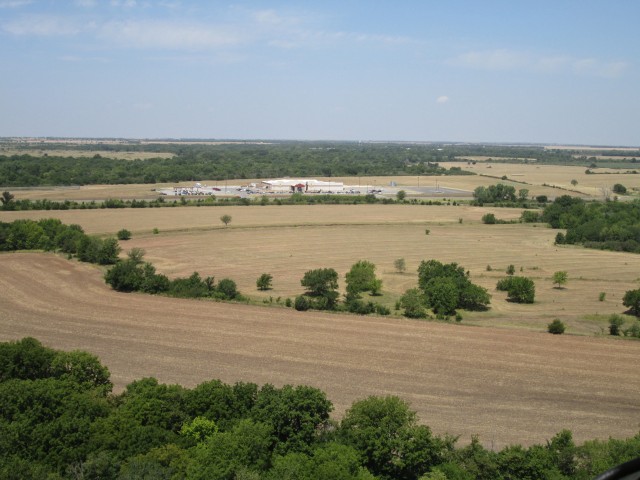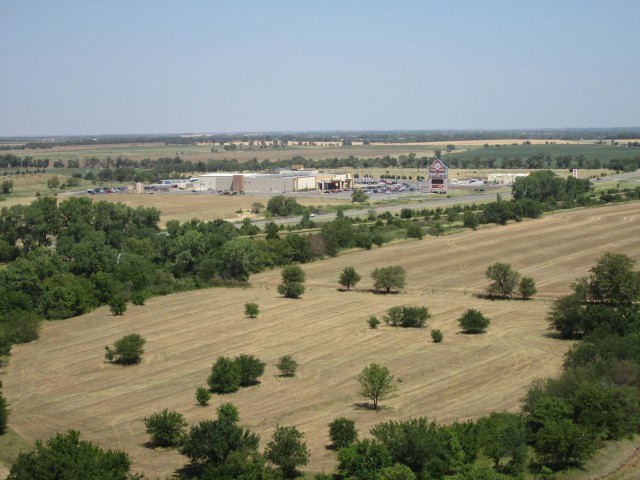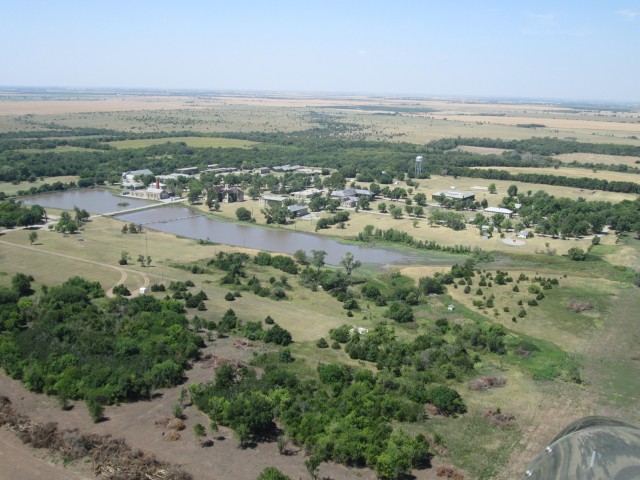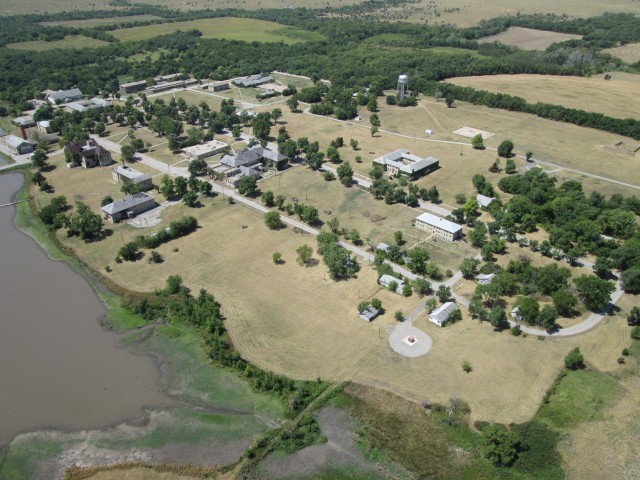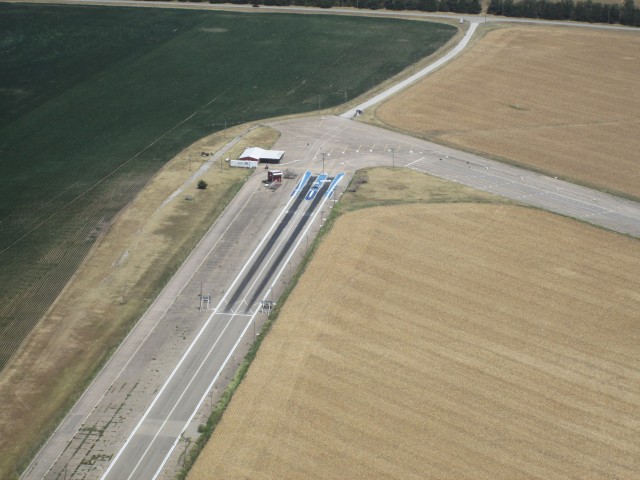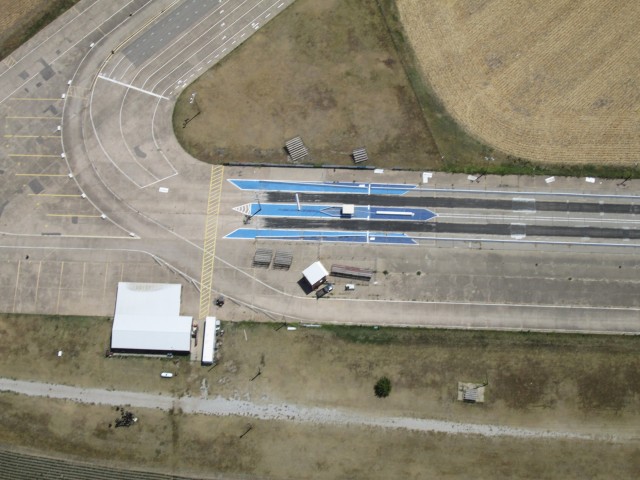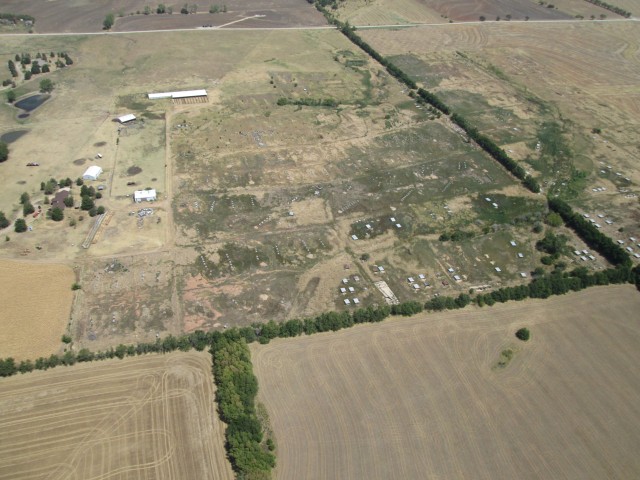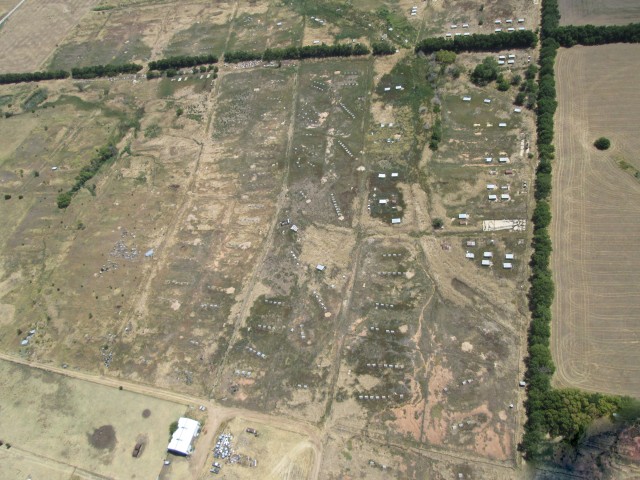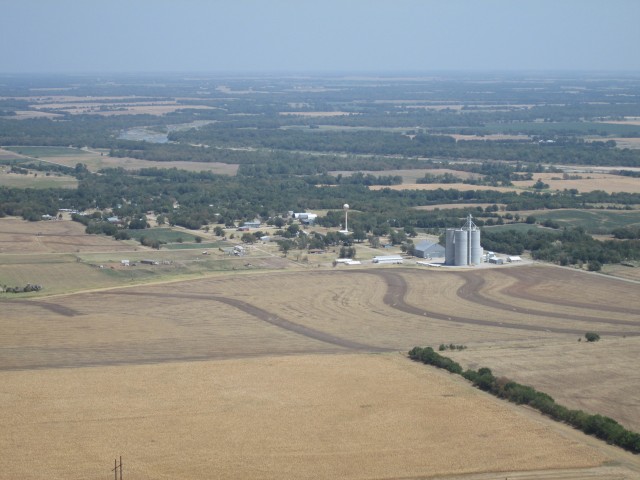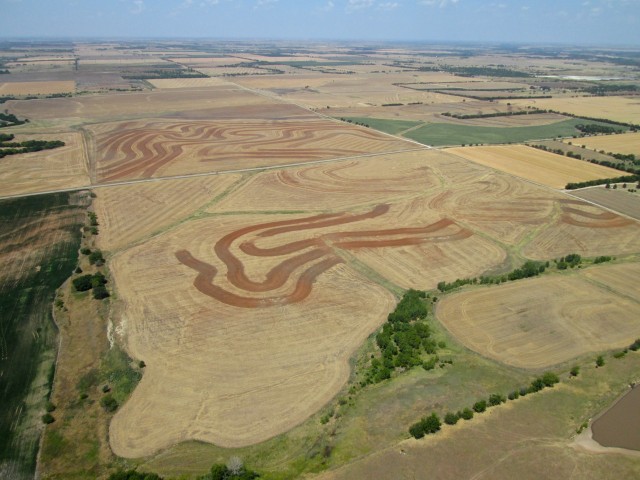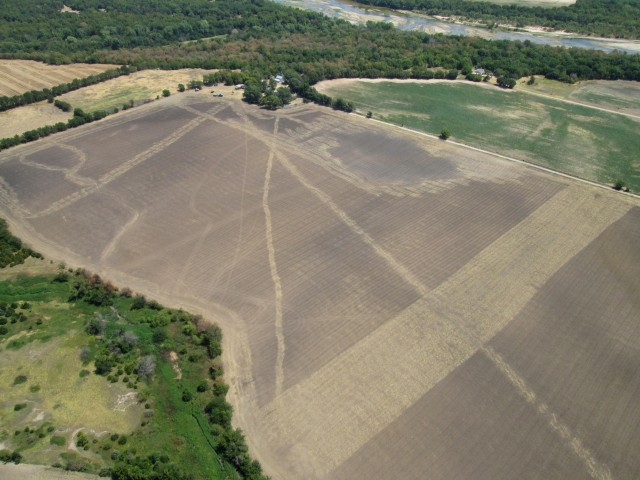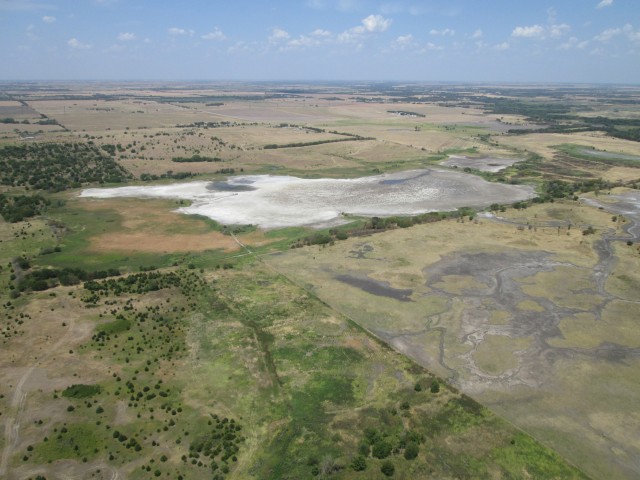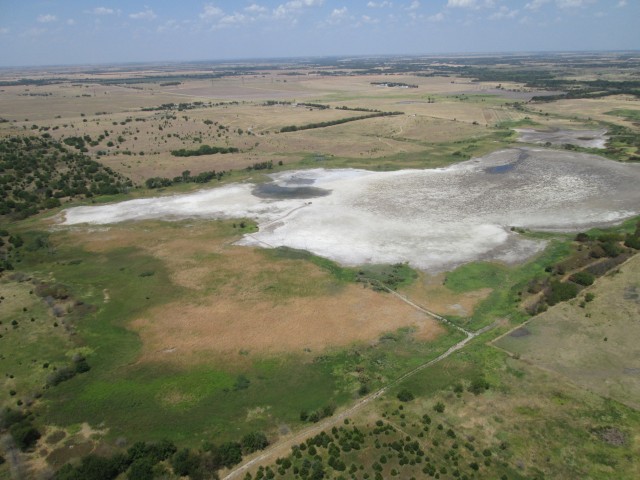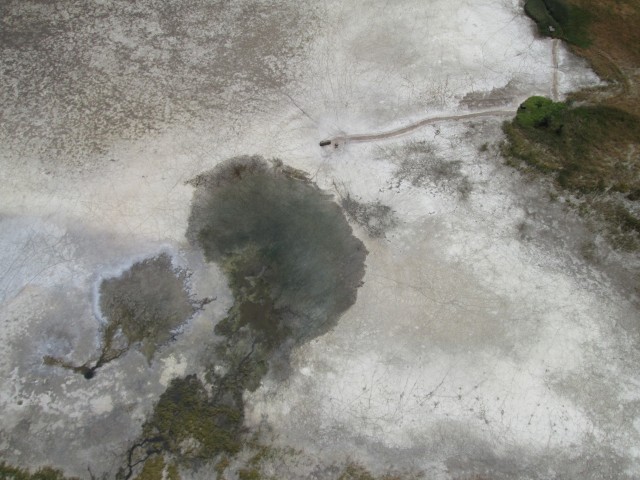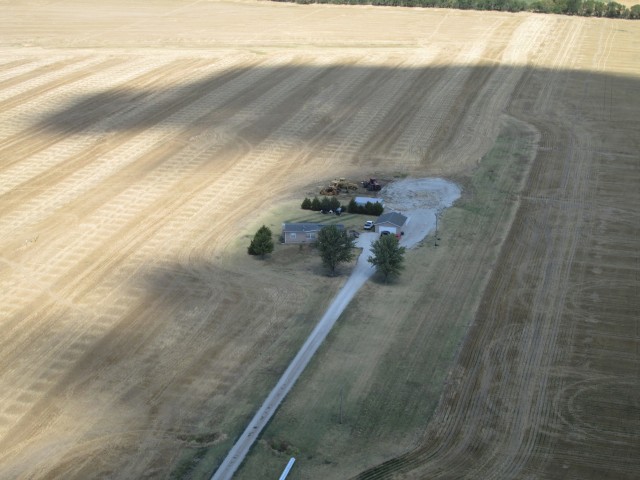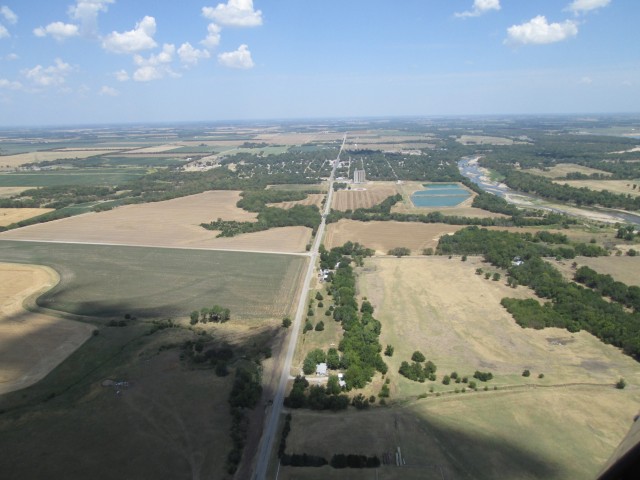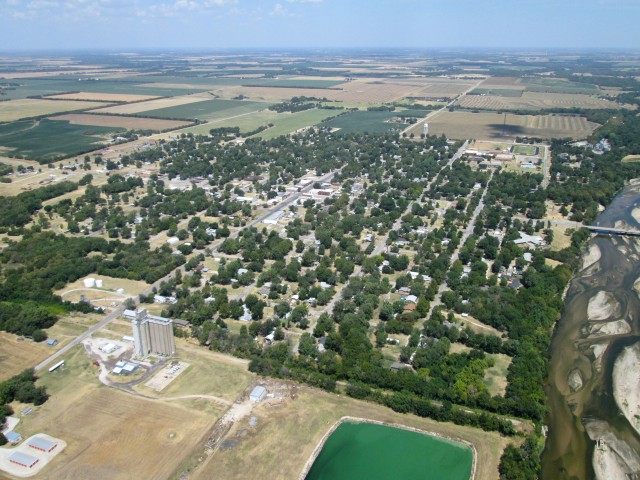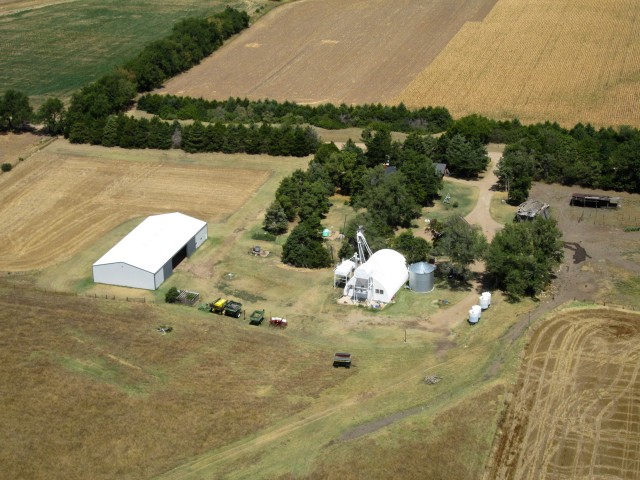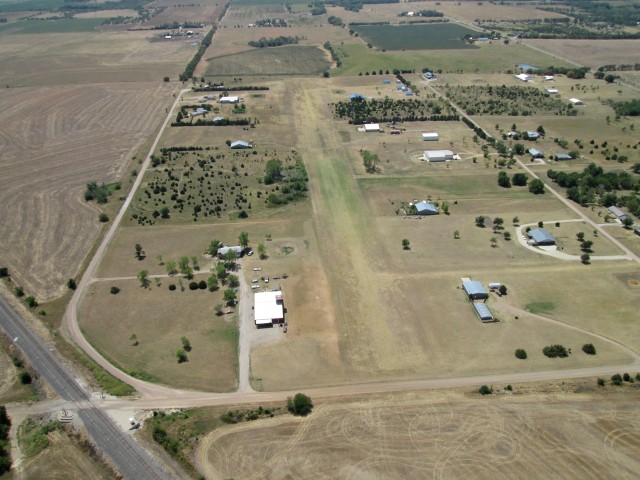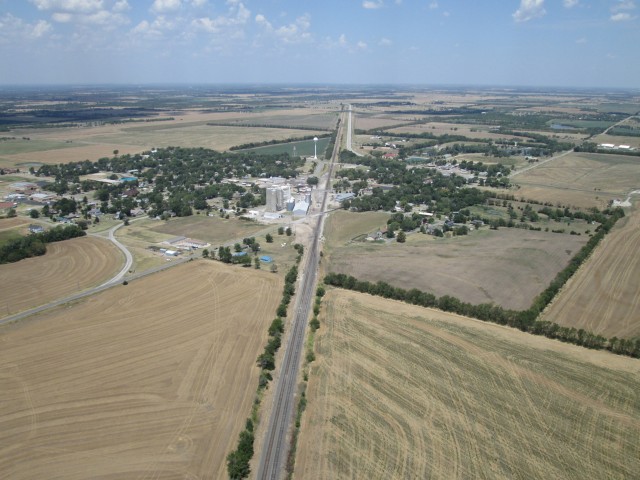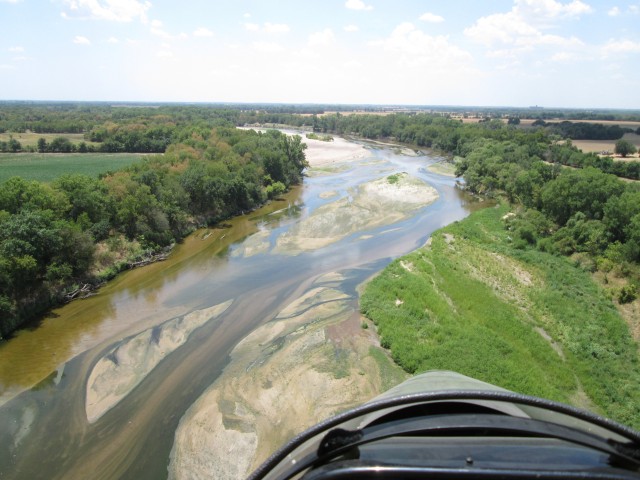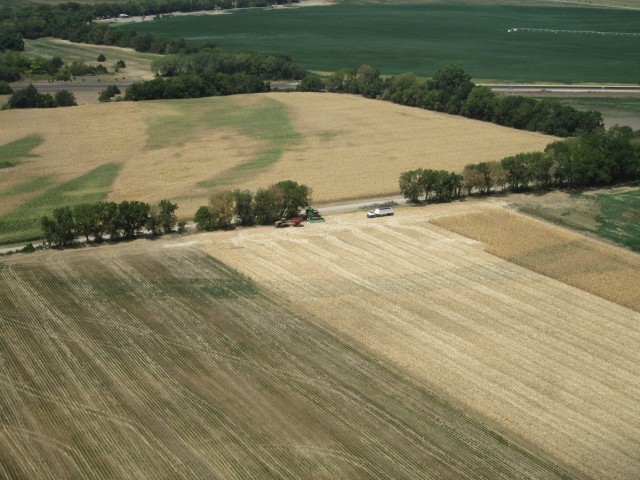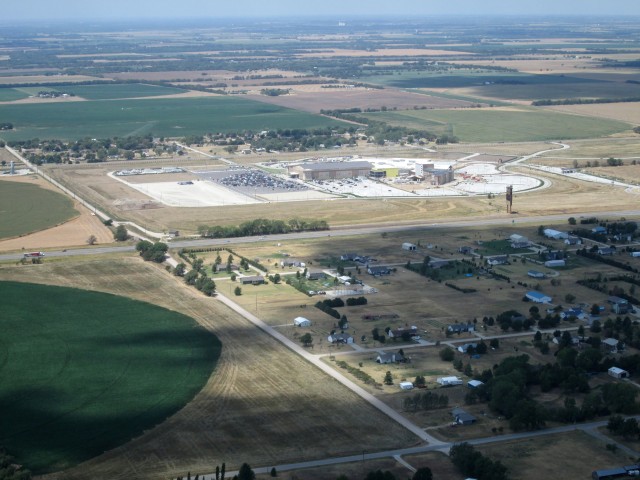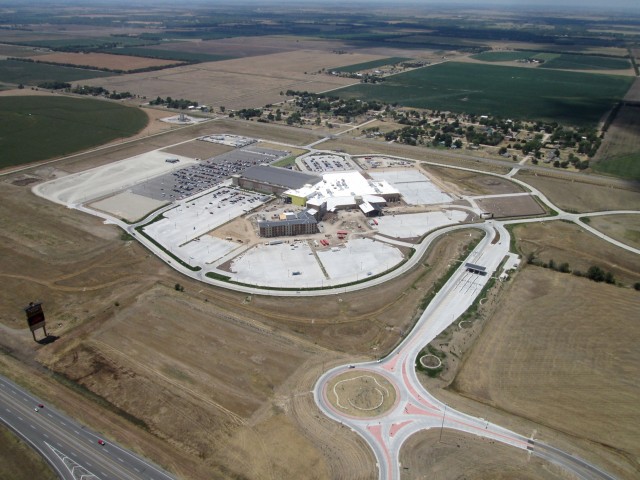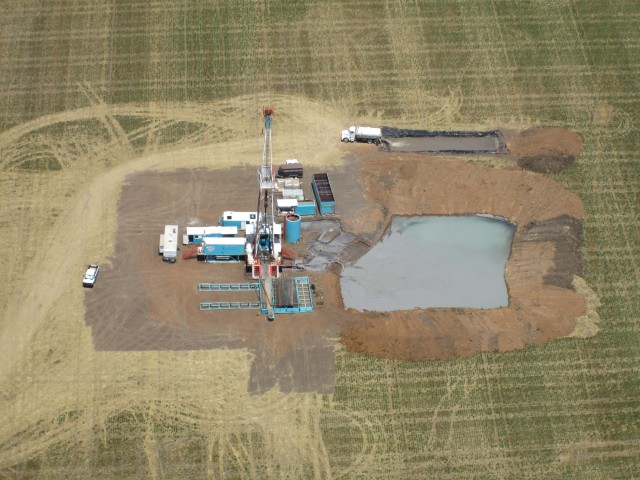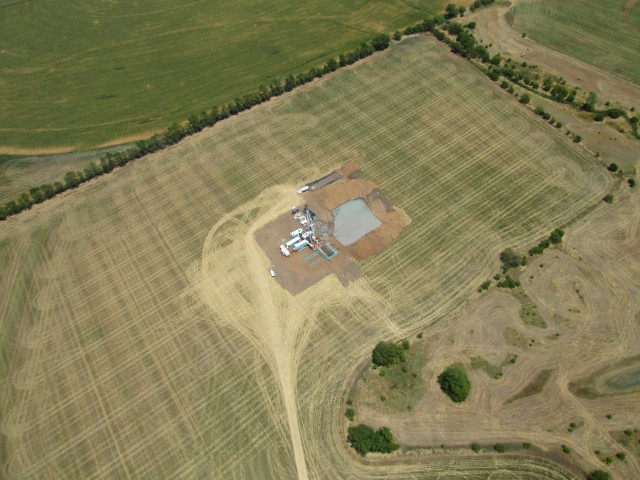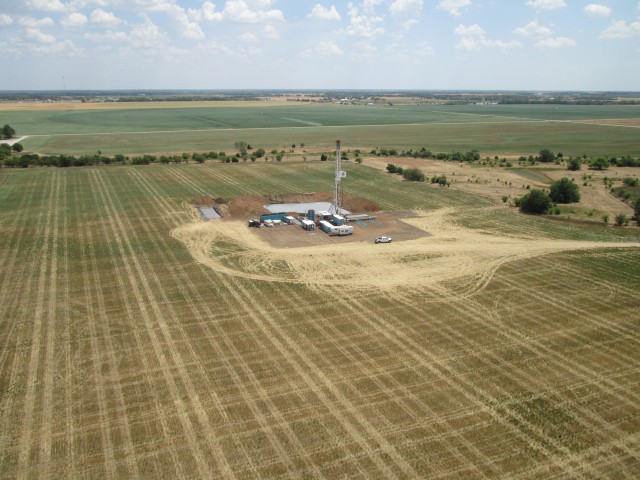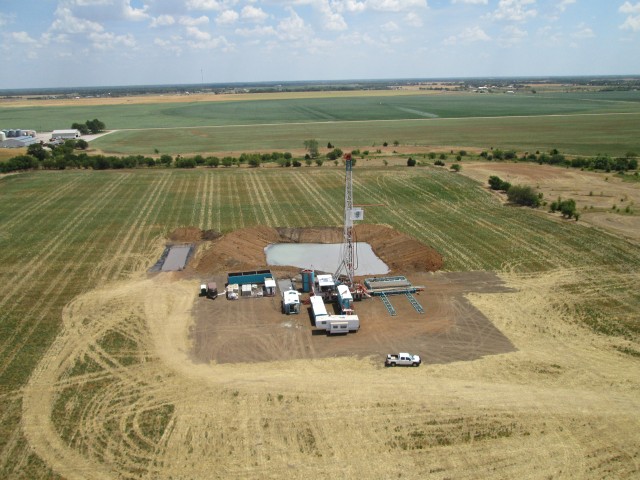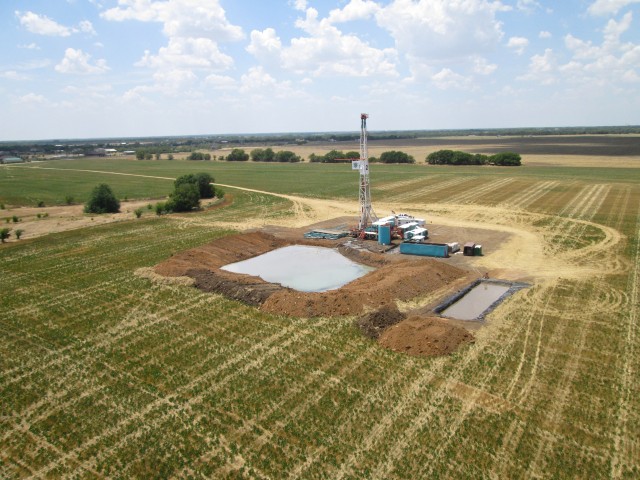Serendipity
The word serendipity is not in common use of late but seemed perfectly pertinent as I ponder my flight to Ponca. (Ponca City Regional Airport last Saturday that is.) When you embark on an Ultralight Flying Adventure, you’re never sure what interesting things you will see but, rest assured, it will always be interesting.
Years ago I was commissioned to do some video work in Ponca City, Oklahoma to help promote The Ponca City Boys Home now known as the Marland Children’s Home. This was back in the 1980’s when I started my business. Ever since then I have not had the opportunity to re-visit that fair burg. As I was perusing my sectional map I realized it was quite within my Ultralight’s Flight Range as long as I commenced flying early in the morning to avoid the South wind’s full force sure to build as the day progressed. By the same token, though, as that South wind gained momentum during the day, it would provide me some Free Thrust for my return flight North.
We had been having very hot days during this time frame. Even though it was around 6 am it was about 78 degrees as I rolled the plane out of the hangar. Frankly, I like it that way except for the negative implications on the crops. The configuration of my MXL is such that I am directly in the breeze. Surface temperatures much lower than 70 degrees necessitate a jacket because you really don’t want to chance a chill at altitude. Thus, a starting temperature of around 80 degrees can only “get better” for me. Winter for me means mostly No Flying. I think snow is something neat to visit but not to live in. The month or two of snow we get here in Wichita, Kansas is more than I need. Hot weather is what I like.
As I gained altitude to pass over the rural homes that encompass Selby Aerodrome, I found that the winds aloft were 20 mph from the South Southeast. This was at about 1,000′ AGL. After I passed over these houses I would be able to drop down to about 100′ or less over the open plains and hopefully find the headwind reduced. If I could not get at least 30 mph ground speed I would not be able to make Ponca City and would divert to my secondary destination – Strother Field.
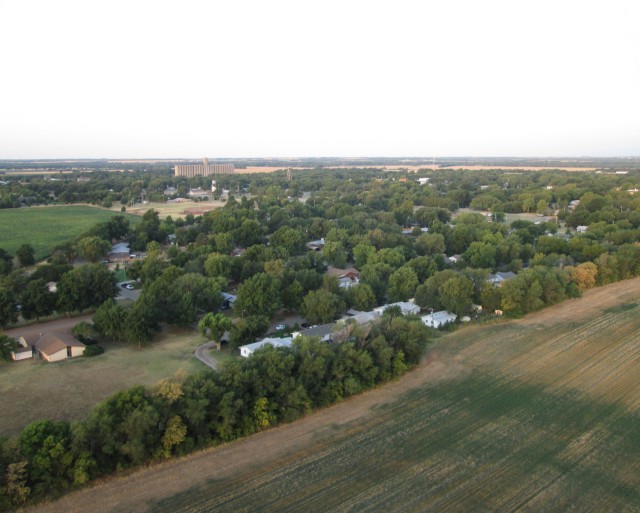
Belle Plaine, Kansas from about 300′ looking South Southwest
I was pretty confident my plan would hold true and, sure enough, as I passed Belle Plaine, Kansas and dropped down to Flight Level 100 (that’s 100 feet above the ground in Ultralight Speak), I was able to sustain ground speeds of 32 – 38 mph. This would be perfect for the 56 mile flight to Ponca City.
As I settled into this groove I became painfully aware of the ramifications to the agriculture my favored hot weather was having. If not so much the heat, it was at least the lack of rain that accompanied this heat wave. News reports for weeks have bemoaned the drought that has hit the area and its effect on the corn crops. Prior to this flight to Ponca City, I had not seen any evidence of this being true. This Saturday I did and it was quite dramatic. I will be showing you HUGE expanses of corn that had grown to heights between 4′ to 7′ that had turned completely brown and dead. These fields are a total loss for corn but I understand they can still use the leaves and stalks to feed to animals. It is a sad sight but one of the perils of farming.
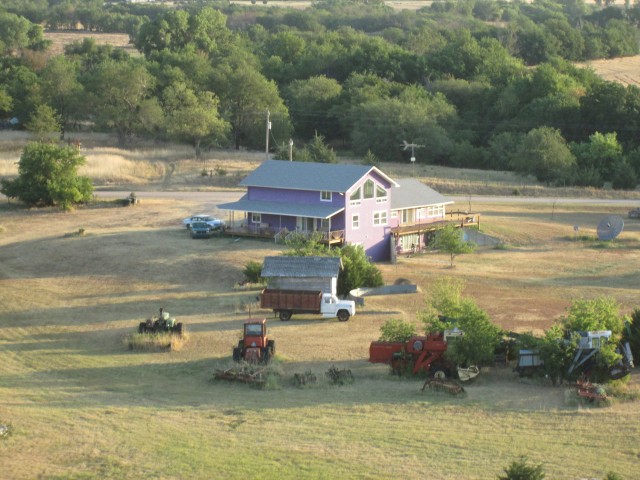
I didn’t see it this morning but I am sure these folks have a PowerCat roaming around their property
Last year I watched them put these high tension lines in when making flights through this general area. The poles are made of steel that “weathers” to an attractive rust colored exterior. They call it “Weathering Steel“. I guess it’s as good as it gets if you are going to have to break up this beautiful countryside with anything at all.
In order to give you a “panorama” of this drought devastation, the shot above was taken directly in front of my plane followed immediately by the shot shown below of the area adjacent and to the right (West) of the first view.
Out in the middle of this great expanse with nary a farmhouse around I saw this large grain elevator appear behind a rise. I was impressed with the size and look of it so I took these photos. This just past the Kansas/Oklahoma border.
Suddenly Wile E. Coyote makes a break for it across a seemingly endless stretch of harvested land. For reasons known only to him, he heads away from a closer tree line to the left of the shot. Terrified he seeks shelter from this Huge, Noisy, Golden Bird of Prey seemingly bearing down to make him its breakfast.
Not wanting to disappoint him, I take up the hunt! This allows me to position the MXL for a “Predator Shadow Shot” that was just shy of perfect.
After leaving Wile E. Coyote panting in the dust I continue Southward. Maybe this is getting monotonous for you but I really want to drive home how bad the corn crop was hit. Beans, on the other hand, not so bad…
About 15 minutes after crossing the last toasted corn field, I am still flying at anywhere from 25′ to 100′ AGL. Checking my timepiece, I am expecting Ponca City, Oklahoma to be showing up soon. I start to see some chimneys and electric lines sprouting up when all of a sudden I realize I am staring into some VASI lights about 3 miles out directly in front of me. I have been following my GPS arrow and it has taken me right, directly to Ponca City Regional Airport (I use a “hiking GPS” and most of the time it isn’t that accurate). I am way, too low for the pattern and really wasn’t ready to land anyhow, so I made a sharp 90 degree turn East to take a grand clockwise circumnavigation of the city.
I haven’t been there for about 30 years but from my memory I think this is the Marland Children’s Home or what was then called the Ponca City Boys Home.
This next series of photos is of a tank farm and refinery that is larger than any I have seen outside of the Houston/Texas City area. It is huge.
Finally as I round the Southwest side of Ponca City the Ponca City Regional Airport comes into view. I had checked ahead of time and saw that they had what I call a “West Pattern”. Today that meant a Right Pattern for landing South. There was one other plane in the pattern on final as I entered downwind.
Ponca City Regional Airport is well kept and features an attractive terminal building and lots of solidly built, even attractive, hangars. Currently it is an uncontrolled airfield. Just as soon as I pulled off the active I took the shot below.
Enrique’s, a popular Mexican restaurant, is located in the terminal.
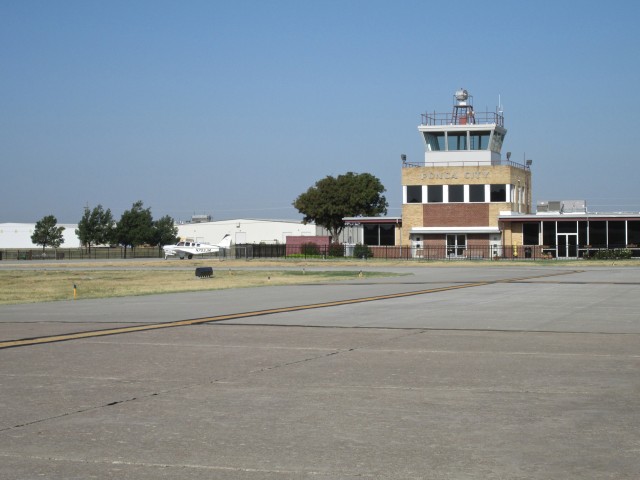
Ponca City Regional Airport Terminal and Tower
I had not even shut down my motor when Don Baker was out next to my plane to greet me. As soon as I could get my earmuffs off and earplugs out, he offered a friendly handshake and a warm hello. Don showed me around the place and told me when I was ready he would bring the gas truck over to fill my tank. I told him I had heard for years about the monthly Ponca City Fly-In but had not been able to make it – or at least did not realize I could fly to it until recently as I had now perfected “long range” techniques for my Ultralight.
I told him I would like to take some pictures for Sky Surfing – The Flight Blog. I explained that I write stories about my flights around Kansas and now Northern Oklahoma. His eyes lit up and he said he would have something interesting to for me to write about as soon as two special folks showed up at the field as they do each Saturday.
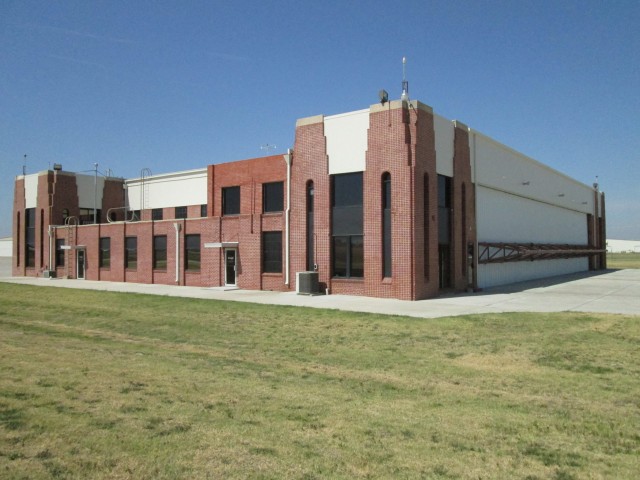
One of the more attractive hangars I have ever seen. It is located directly South of the Terminal. I believe Don told me it had once been the Phillips Petroleum Hangar. (NOTE: Thanks to reader Dale Jewett for correcting me on this. I should have taken better notes when talking to Don. This hangar had originally been the CONOCO hangar)
A Cradle of Aviation – The Northern Oklahoma Flight Academy
About a half hour after I arrived at the airport the two special folks Don Baker wanted me to meet showed up: Dean and Pat Henson. They are a big part of the reason I titled this piece “A Visit to The Cradle of Aviation“. (OK, I know it isn’t Dayton, Ohio, but when it comes to continuing the Legacy of Flight, places like this are supremely important) I discovered that under their leadership and through the tireless effort of their friends, associates and Aviation Booster Club, hundreds of young people have been introduced to the joys and wonders of aviation through participation in the annual week long Northern Oklahoma Flight Academy. Pat is the current President and the two were out early on a Saturday morning to get some work done in the shop. Curious by nature, I asked them if they could tell me a little bit about The Academy and this they were very gracious to do.
The program is in June of each year and lasts for five days. It is open to kids starting from Fourth Grade on up to High School Seniors. The curriculum is tailored to the different age groups involved. Some of the highlights are:
- Actual training in a WWII era Link Trainer
- Dis-assembly and reassembly of working 4 Stroke motors under the watchful eye of licensed A&P Mechanics
- Assembly of a scrapbook made by riveting aluminum sheets together (how cool is that!)
- Covering of wing sections with fabric
- An Opportunity to See the Oklahoma Highway Patrol Helicopters and Aircraft Which Fly In for the Kids
- Weather instruction by the Channel 9 Weatherman
- Operation of a Working Hovercraft
- Instruction in GPS Programing and Operation
- Younger Children Get to Construct and Fly Their Own Kite
- 1 Hour of Dual Instruction for High School students
The young people bring their own lunch but everything else is provided for the day. I can’t think of a better way to occupy a week of summer vacation which has the additional possibility of opening the door to a career in aviation.

Pat & Dean Henson with Dean’s highly decorated flight cap in the foreground on the table. Their school storeroom is behind them
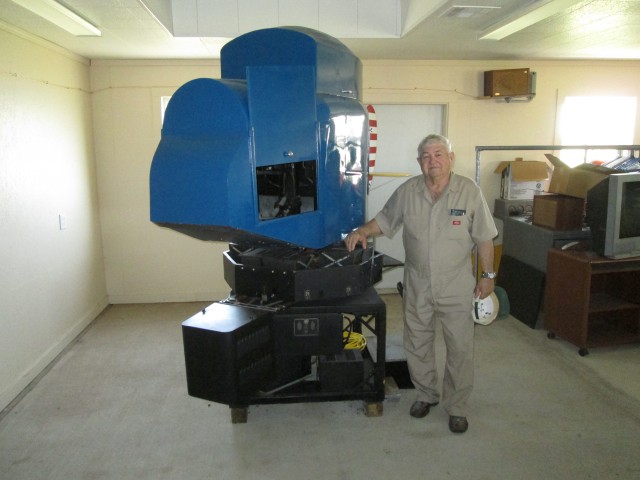
Quite a marvel in itself, this Link Trainer is fully functioning and is used to acclimate students in the NOFA to flight before actually taking to the air later in the program
Below is their multi-purpose room. By using hanging curtains with “sound deadening” quality, it can be divided into various configurations in accordance with the teaching needs for each day. You can see the tables and chairs stacked to the sides.
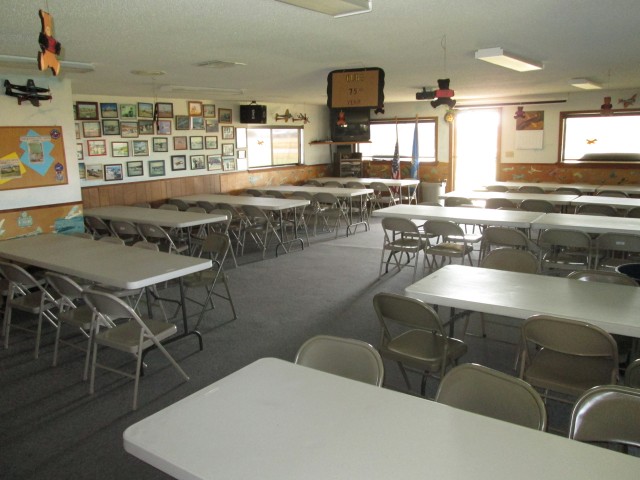
Another Large Meeting Room for Use of the Academy and the Aviation Booster Club as well as to Host the Monthly Fly-Ins
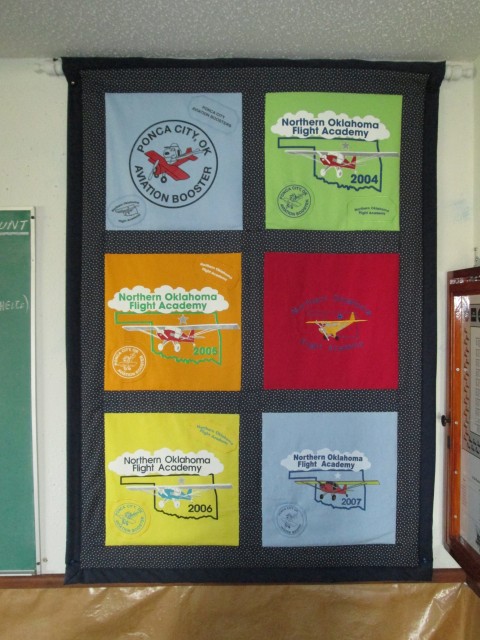
One of the Lady Volunteers Constructed this Attractive Display Featuring a Variety of T-Shirt Designs Employed Over the Years
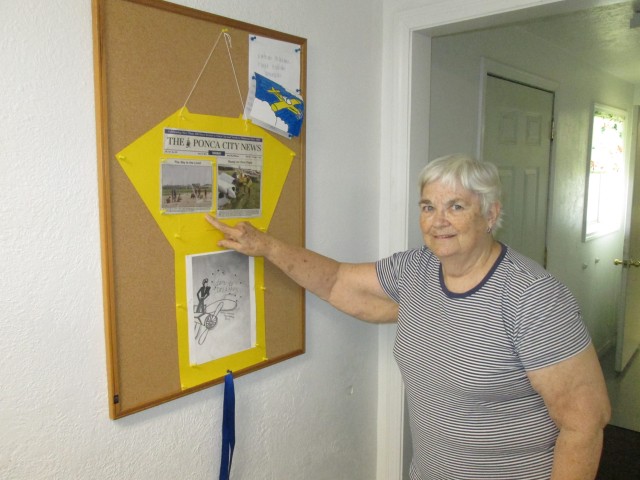
Pat Henson Points to an Article that Appeared in the Ponca City News Extolling the Northern Oklahoma Flight Academy Summer Program
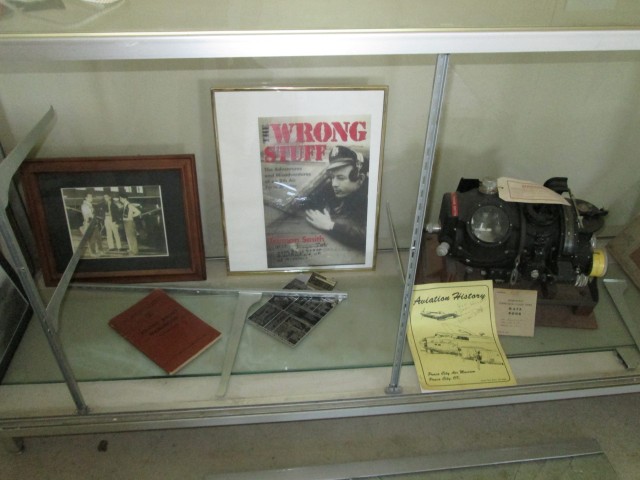
The Club also owns a Norden Bombsite and a Signed Copy of “The Wrong Stuff” by Ponca City Native and Decorated WWII Veteran Truman Smith
While Dean and Pat were showing me around the impressive Aviation Booster Club facility I discerned that Dean is also a pilot and builder of aircraft. I asked him to show me his work which he was gracious to do. First we looked at his current project a 66% scale Beech Staggerwing. I am looking forward to seeing this when it is done. The Staggerwing is one of the most beautiful planes ever designed.
A testament to his fortitude, Dean spent 43 years finishing the BiPlane you see in the photo below. You can see by the detail in the paint work, though, that his diligence paid off!
Dean’s hangar also sports a collection of Antique Propellers.
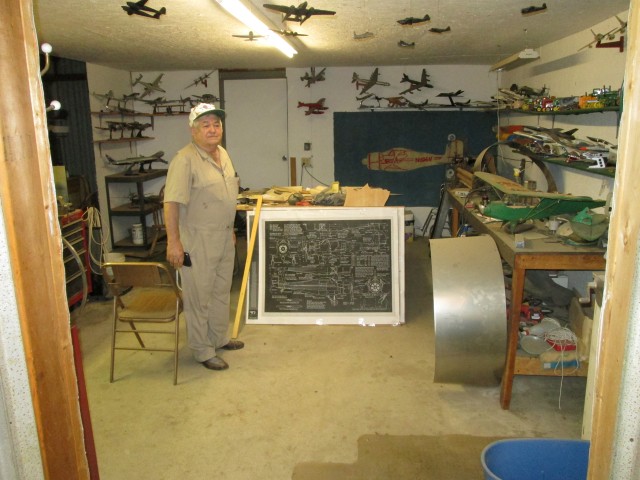
Adjacent to the Hangar is this Workroom/Showroom replete with Highly Detailed Models of a Wide Variety of Aircraft
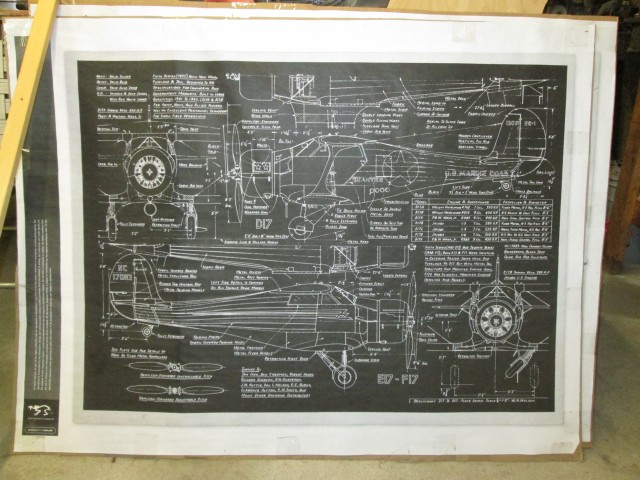
Staggerwing Prints
Just so you don’t get the wrong idea about Dean and Pat, I am the one who insisted they be shown in all the photos above. While effusive in their love of Aviation and the Flight Academy, they are quite modest and not wishing to call attention to themselves. They just want to share the joy that is flying with everyone they can. I can relate to that.
It is through the tireless efforts of the Hensons and their friends that the next generation is being given the opportunity to carry the flight baton into the future. If you want to help them achieve their goal, give them a call and lend a hand.
It was close to 11 am and even though the heat was starting to bump 100 degrees Dean was exited to show me a couple more of the highlights at Ponca City Regional. He had seen a few of his flying buddies show up earlier at the field and hoped they were still at their hangars so we jumped in the Caddy and headed around the corner. Fortunately for us they were still there after putting a few finishing touches on their project.
It was Cleo Greenhaw and Max Hardman who have been working on “Brer Fox”, Greenhaw’s Loehle P-5151 (which he says is for sale).
It has a Suzuki motor with fuel injection featuring computerized engine control (FADEC).
On the way to taking me back to my plane Dean saw signs of yet more activity that hot summer morning. It was Steve McGuire closing up shop after taking a buzz around the area in his Corbin Baby Ace. Steve finished this one in 2005 and has won awards for its excellence.
Dean and Pat took me back to my plane and we said our goodbyes. I told them I would be back for their monthly fly-in this season if possible but no later than the 2013 Flying Season.
Don fired up the fuel truck and sold me 5 gallons of 100LL. I brought my own 2 stroke oil in a small pack I have behind the seat and mixed it in the tank. Guys can be very particular about fuel for their 2 stroke motors. I won’t say I am lackadaisical about it, but I have not had any cooling problems or detonation from using Quicktrip Premium at the gas stations or 100LL at the airports. I’m partial to Pennzoil Air Cooled 2 Stroke Oil but since it is getting harder to find I am thinking about switching next season.
I finally have mastered (about 90% of the time) starting my Rotax engine with about 2 pulls on a hot day. I pulled it through twice and it roared into action. I taxied out to the center of the runway and lifted into the air. It was High Noon. The temperature was over 100 degrees on the ground and the air was turbulent – Perfect For Some Sky Surfing!
As I was planning this trip I noticed on the map the town of Newkirk, Oklahoma. It would be to the East of my path and I decided I would take a look at it on my return from Ponca. They are always advertising the casinos around there so I figured I could get some shots.
Years ago I had a few rock ‘n roll bands out in California. It was in the 1970’s and back then the casinos were only in Nevada and New Jersey. My bands would travel over to Nevada play in casinos on occasion although they weren’t really one of our mainstays. We played Rock and they wanted Show. Even so I was able to swing some jobs in Reno, Tahoe, Carson City, Squaw Valley and Fallon, Nevada. Having worked inside the casino scene, I have developed my opinions about them but I won’t get into that for this article. I think one must admit, though, they are not the same type of “industry”, as say, an aircraft manufacturing company…
After passing all the casinos around Newkirk I saw the abandoned school pictured below. When planning the trip I saw “Indian Agricultural School” on the map and was looking forward to seeing it. Even though the map did not let on, it was obvious as I flew over it that it was abandoned. Here is what Wikipedia says about it:
Chilocco Indian School was an agricultural school for Native Americans located in north-central Oklahoma from 1884 to 1980. It is located approximately 20 miles north of Ponca City, Oklahoma and seven miles north of Newkirk, Oklahoma, near the Kansas border. The name “Chilocco” is apparently derived from a Muscogee (Creek) word meaning “big deer” or horse.
Maybe I am just stating the obvious but does anyone find it at least CURIOUS that in the general timeframe wherein all of these “Indian” casinos have popped all over the place, a school to teach farming to Indians has been abandoned… There is more about the School HERE and HERE if you are interested to learn more about it.
Another place I had on my agenda from studying my map prior to the trip was an abandoned WWII Airfield called “Strother Field #2“. When I first saw it on the map I didn’t think I knew anything about it. I have been to Strother Field (#1?) between Winfield and Ark City many times (here is an entry from a trip there), but I did not know about this “#2”. I was really looking forward to landing there hoping there would be some old buildings to take pictures of. As I approached Strother #2, I realized I HAD been there before but just didn’t make the connection. A few years back while working on my documentary about the American Muscle Car, “Decade of Thunder“, I visited a number of car shows and events. One memorable event which I turned into a music video (“What a Drag“) featured a drag race near Arkansas City, Kansas on an old abandoned airstrip. I had mentioned to Don Baker back at Ponca City Regional that I was going to look for “Strother Field #2”. He said he had never heard of it but he did say he knew of an old abandoned strip near Ark City where they had drag races. At that point, my lightning fast brain had not yet put the puzzle together. As I approached Ark City, though, it all came together… They call it Mid-America Drag Strip. All I could find on the web for it is this lonely Facebook page.
Here is a neat web page by Paul Freeman detailing a number of abandoned airfields around Kansas. Strother Field #2 is addressed on it.
The cool thing about Mid America Drag Strip is that you can get fairly close to the cars as they spin their tires for the “burnouts”. I was able to get some great shots in slo-mo. You want to make sure you don’t get behind them, though, or your camera lens (and forehead) can sustain a sandblasting treatment.
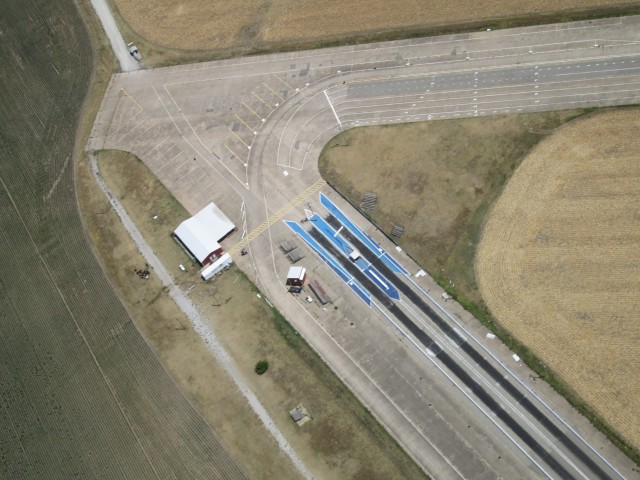
Looking down at the starting blocks of the Drag Strip from about 1,000′. You can see the grandstands next to the lanes. The larger white-roofed building houses concessions, restrooms and the announcer booth.
As I left the area of the Airfield/Dragstrip I saw these strange little huts shown below. I have seen them a few times in different areas during my flights but cannot figure out what is being raised in them. I assume this is some type of animal breeding activity but I never see any animals around any of the sites thus far. I would have descended to get a better, closer shot but I was riding a good 15 mph tailwind and didn’t want to burn the gas I would need to climb back up on “The Wave”. Let me know if you know what these are for.
My Kind of Town
Geuda Springs, Kansas is notable for two things. The first is aesthetic. I think they have the most impressive, futuristic water tower on the prairie. It caught my attention from miles away. The second reason they are known internationally is derived from another “Second” – The 2nd Amendment to the Constitution. Geuda Springs residents are so convinced of our Right To Bear Arms they passed an ordinance about 10 years ago requiring everyone in town to own a firearm and ammunition.
Suddenly off to the West a large bright white patch of ground caught my eye. It was interesting enough to grant myself permission to “depart from my (meandering) course” and investigate. Since I was fresh off a trip to the Oklahoma Salt Flats two weeks prior, I figured it was another salt flat area. Or perhaps it is an area from The Old Days in the Oil Business where they would drain salt water that contaminated an oil well on the ground. It is a few miles North and West of Geuda Springs.
Oxford, Kansas is seen below. It has an airfield but it is miles East of town. I wish the airfield were closer so I could walk into town and look around. I really like the small towns of Kansas. They are a national treasure.
A few miles North of Oxford I was trying to figure out what they manufactured in the Quonset Hut building to the right.
Udall, Kansas is one of my favorite stops. Just South of town is Cherokee Strip, an aviation community. I know quite a few folks there and will drop in to say HI if I see any activity – sometimes I’ll land even if I don’t see anything going on.
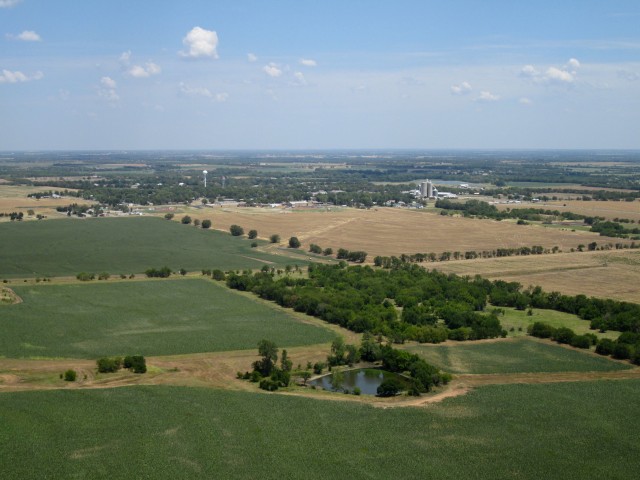
Udall, Kansas from 1,000′ AGL Looking North Northeast
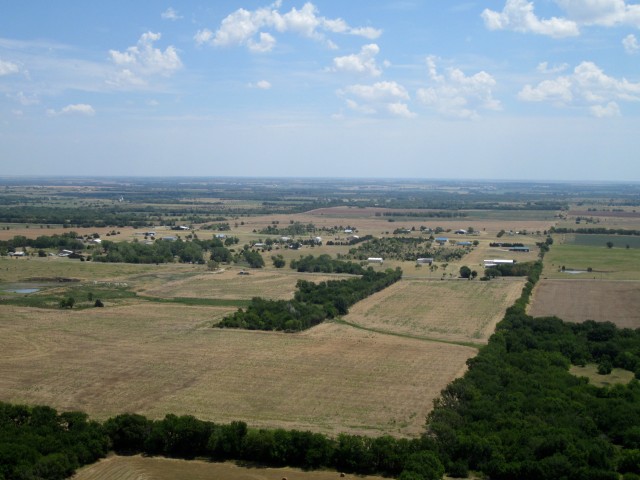
Cherokee Strip from 1,000′ AGL Looking East Northeast
Today I didn’t see anyone around so after flying down the Downwind Leg of the pattern I opted to leave the area and return to my home field.
As I approached the Ninnescah River, I noticed some camping activity on the river’s side. I dropped down to look and saw a group of boys walking on a sandbar in the river. In the shot below they only appear as specks on the farthest sandbar. I dropped down to make a pass by them. I would have had a neat picture to show you of them waving at me but I guess I missed the button…
I noticed the guys in the shot below working out in the field. I was impressed at their fortitude because it was at minimum 105 degrees on the ground. It was hot up where I was, but probably more like 90.
Kansas, not to be outdone by Oklahoma, decided to have STATE OWNED CASINOS, you know, to keep them “honest”. I still can’t figure what is “honest” about an enterprise wherein everybody knows the odds are stacked against the chump (whoops!) I mean customer… Below is Mulvane, Kansas‘ casino unit.
Our neighbor Ken LeBlanc is a petroleum geologist. Ken prospects well sites and also “sits” wells. Sitting a well entails examining bits of rock that are drawn up by the oil drilling rig so as to see what strata the drill bit is passing through. The idea is to locate the “zones” where the oil is so you can pump it out. Most of the time Ken has to travel many hours from home and stay on various drill sites for weeks at a time. The week before I headed to Ponca City, though, he told me he would be working a well near Wichita and asked if I could get some pictures of it. He didn’t have to ask twice. I love doing this stuff. Once I was on the scene it took a little more time than usual to get the shots. The air was very turbulent and made my machine a wobbly camera platform. Response? Try harder.
Taking Pictures is not a Casual Thing for Me
You can get a feel for how long it took me to capture these shots if you notice that there was a truck dumping water into the north holding pond when I showed up. It is nowhere to be seen in the last photos. After zooming around the well site for awhile I figured I got some good shots and was getting low on gas so I headed for Selby Aerodrome.
It was another great day Surfing The Skies of Kansas!
See you next time!
Blue Skies & Tailwinds!
Brian FitzGerald
